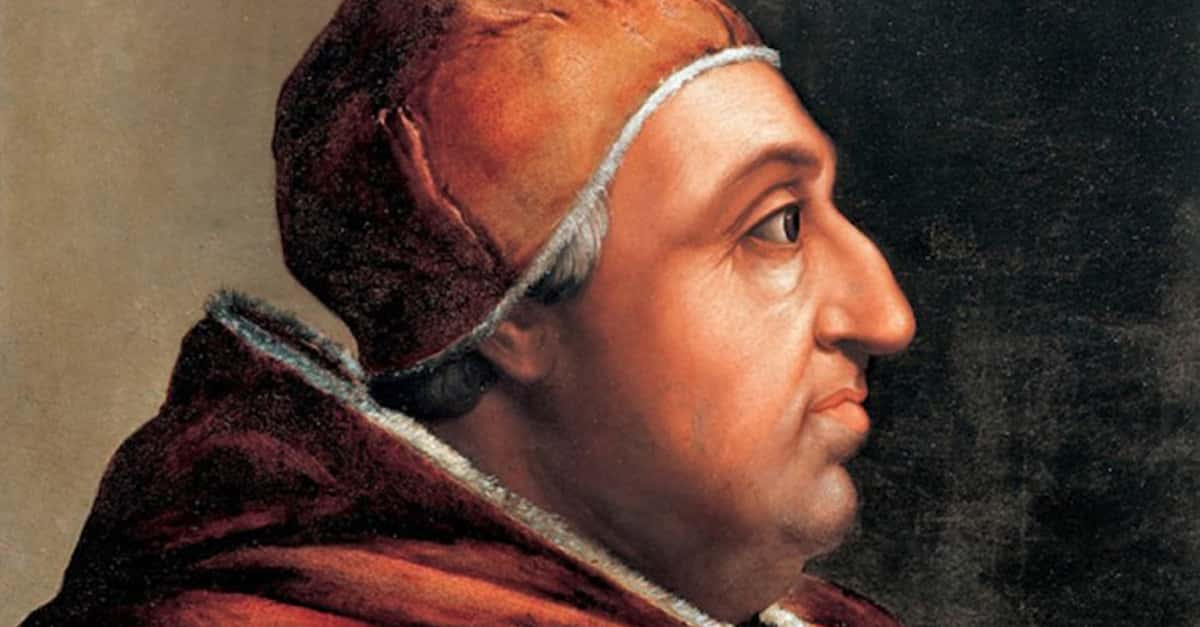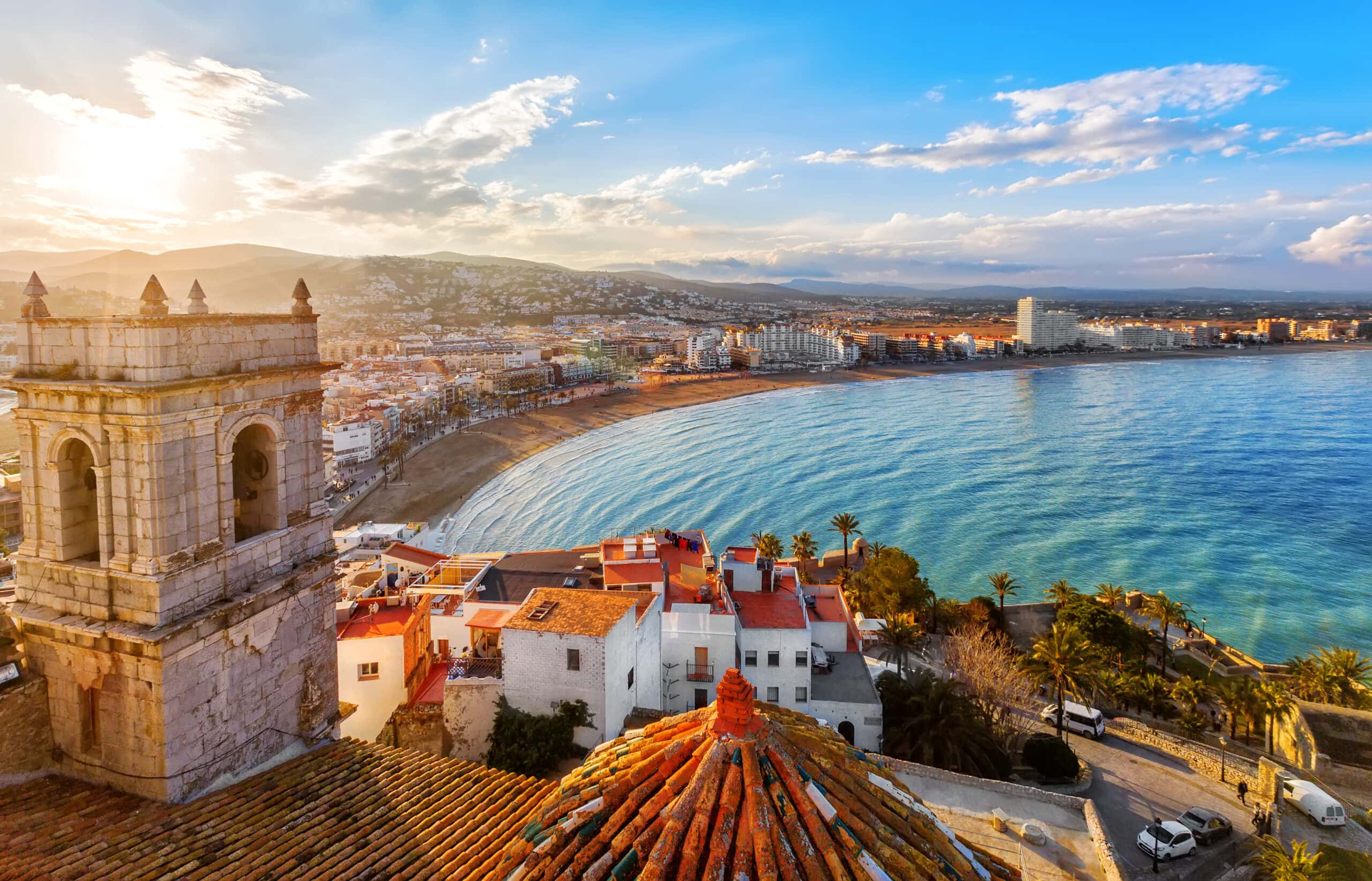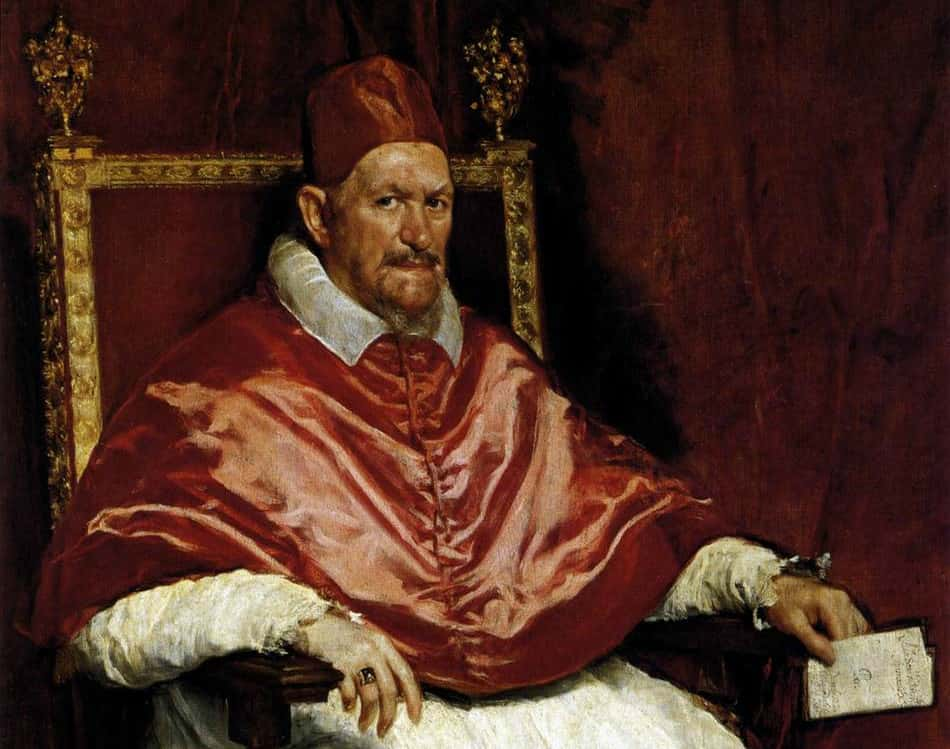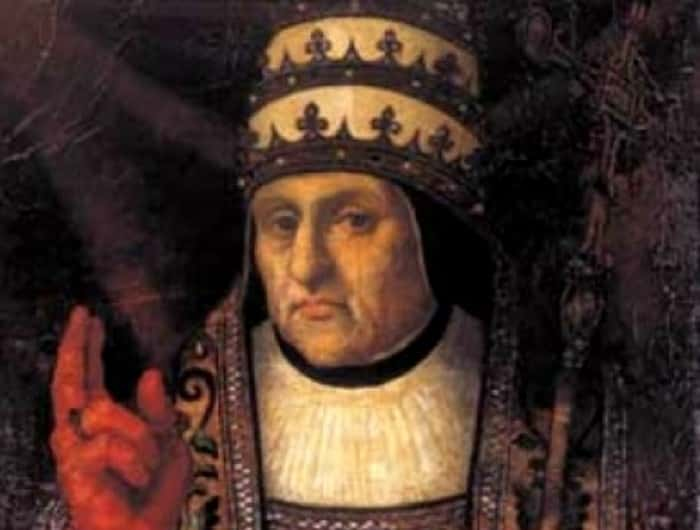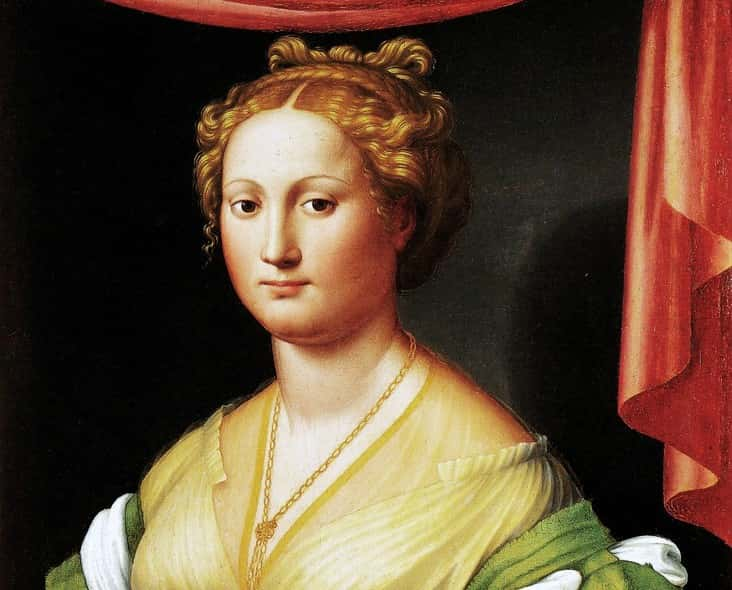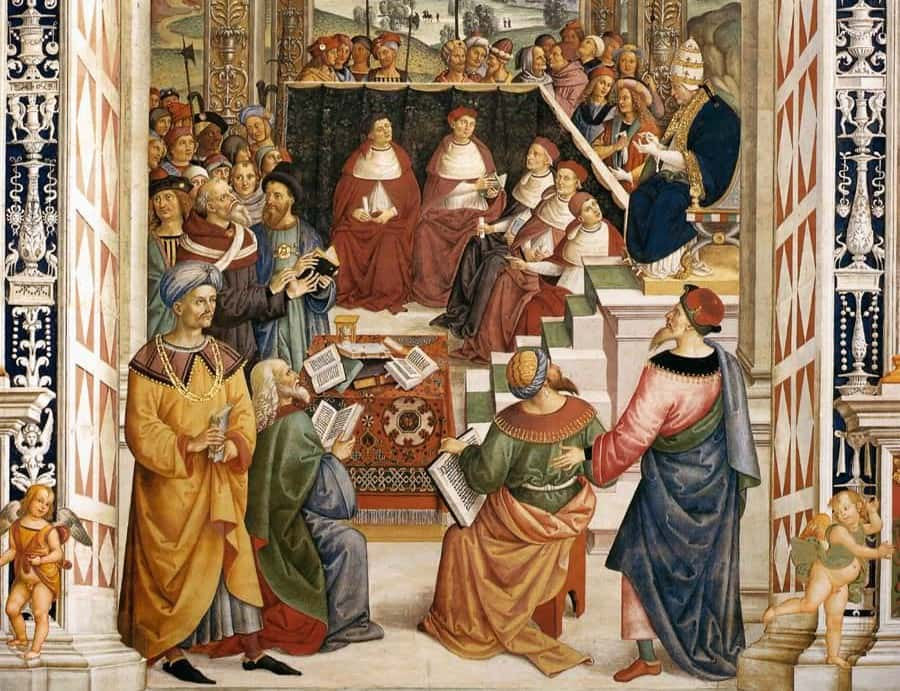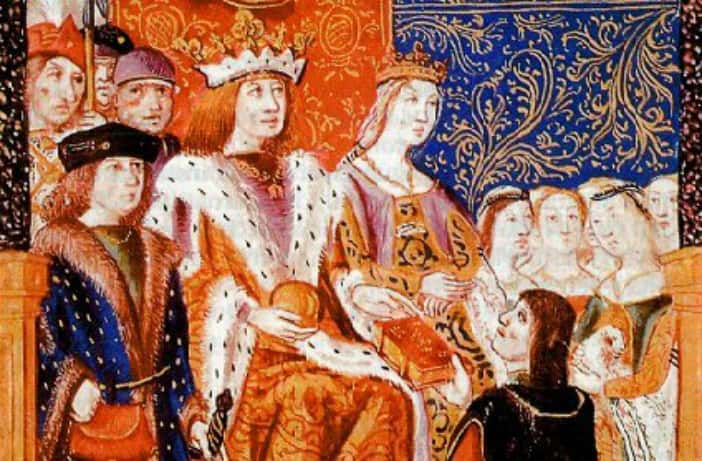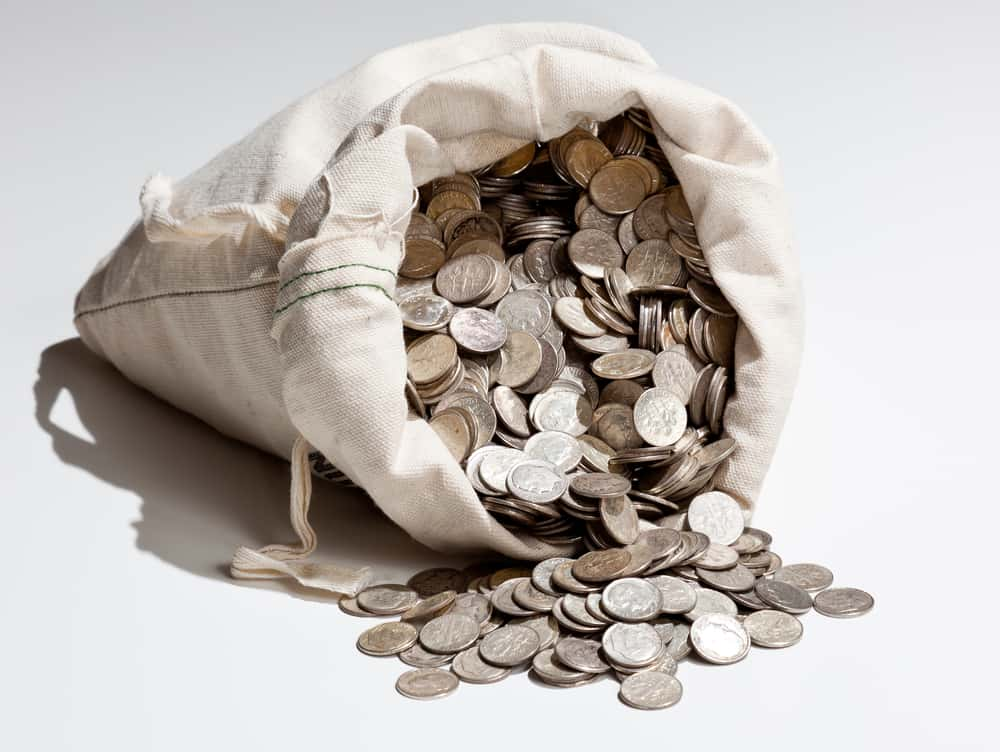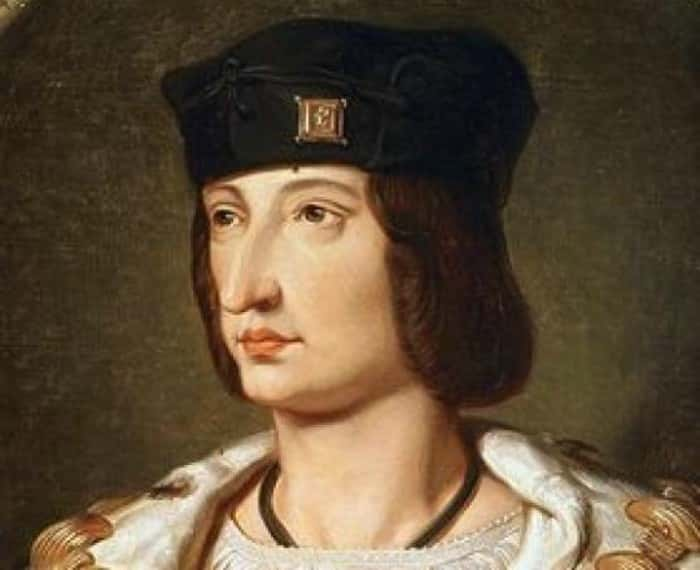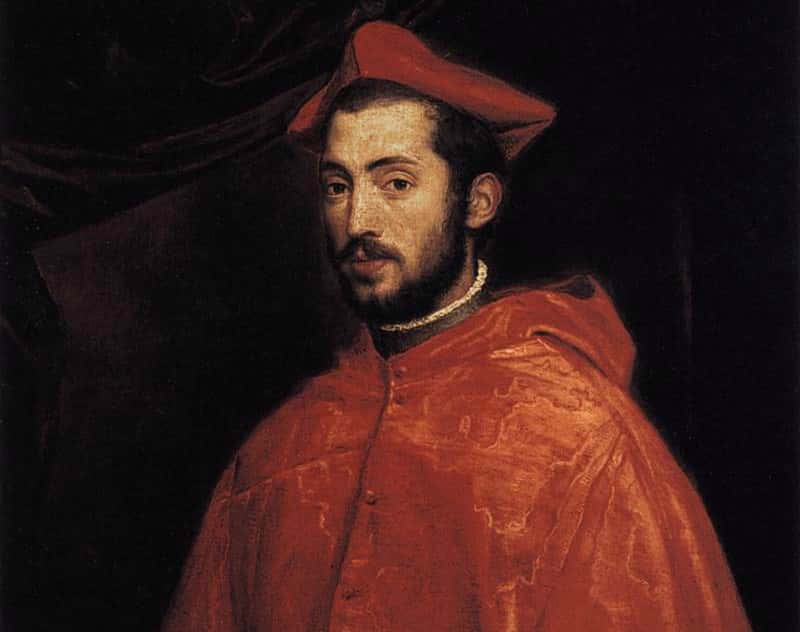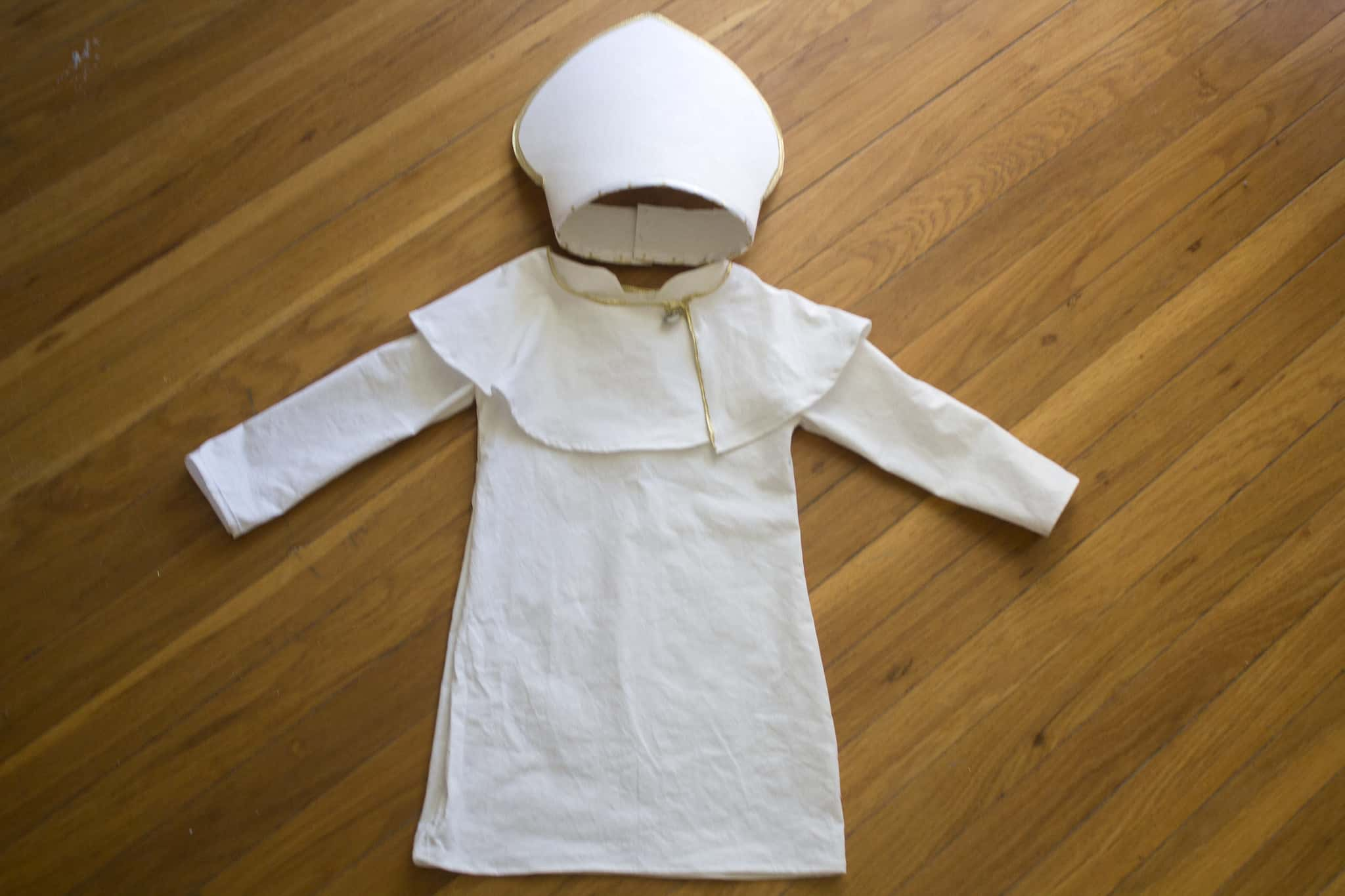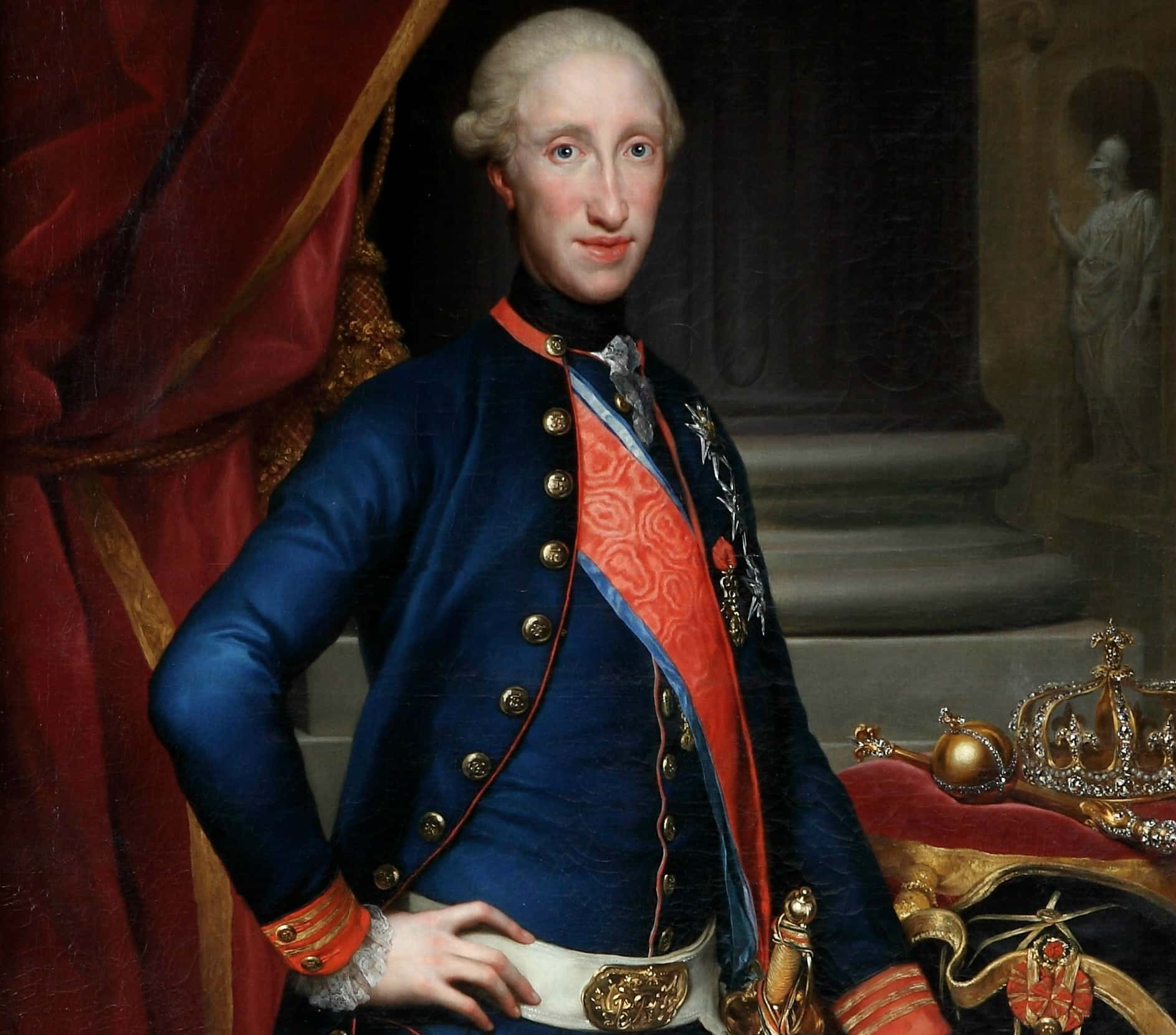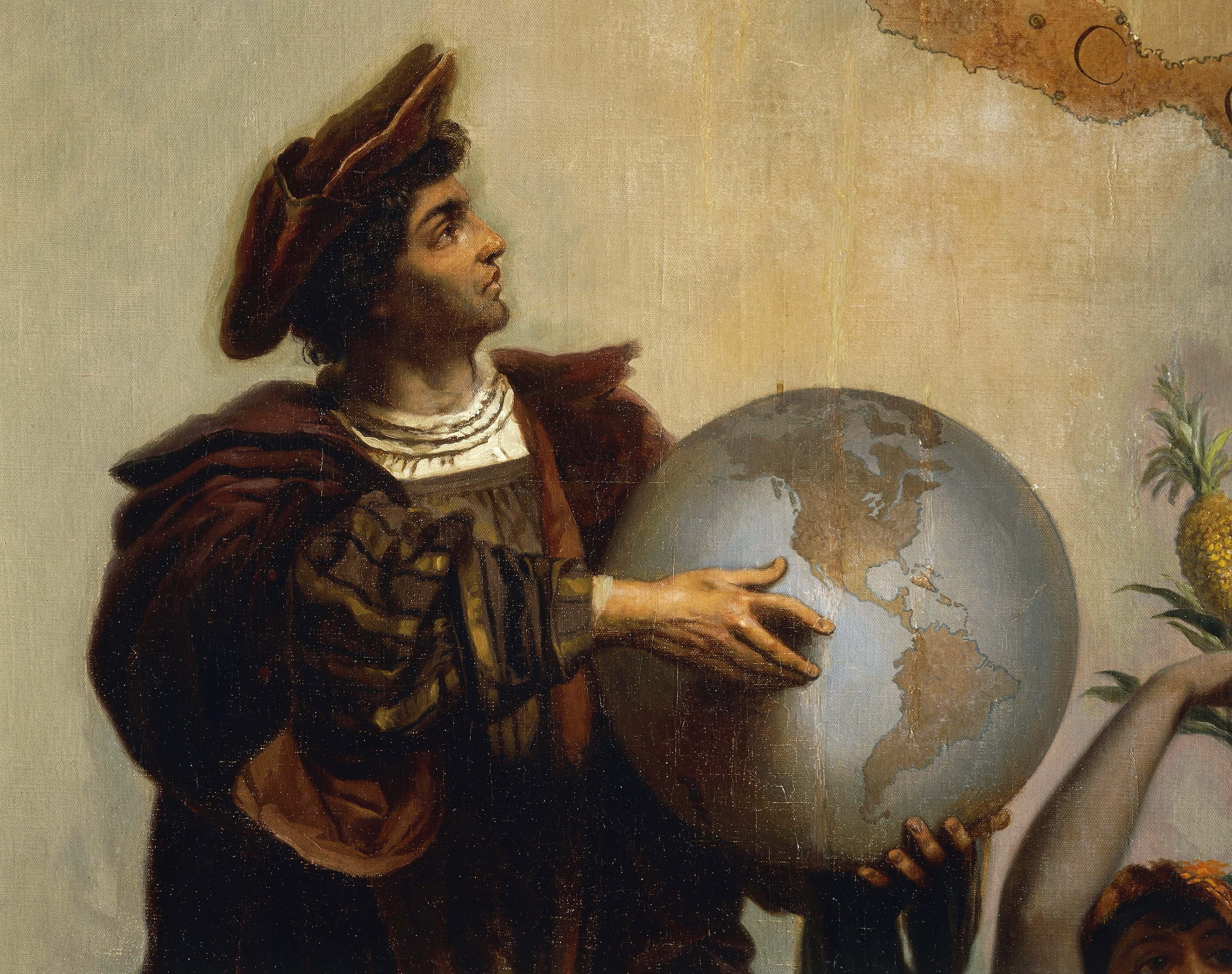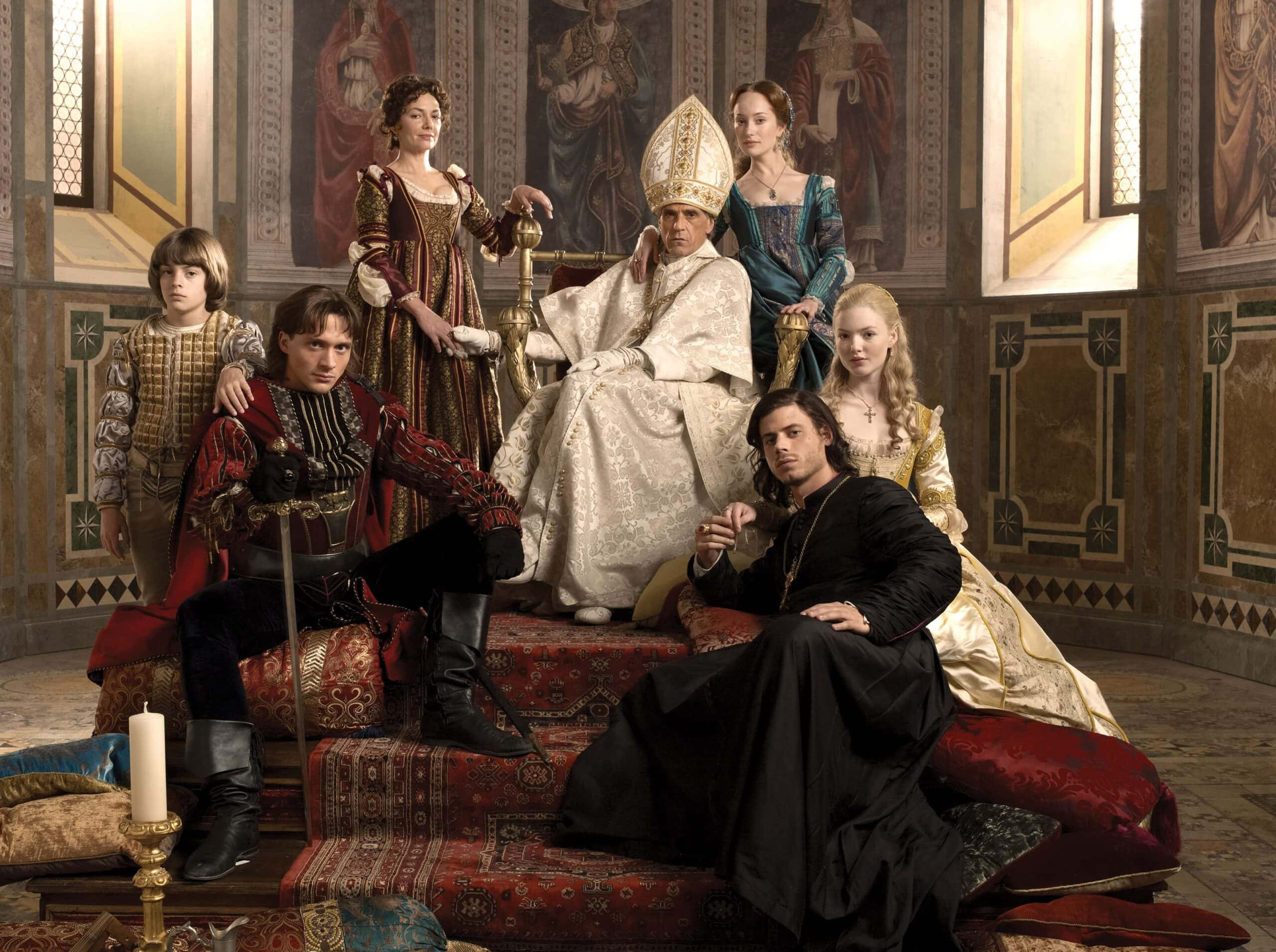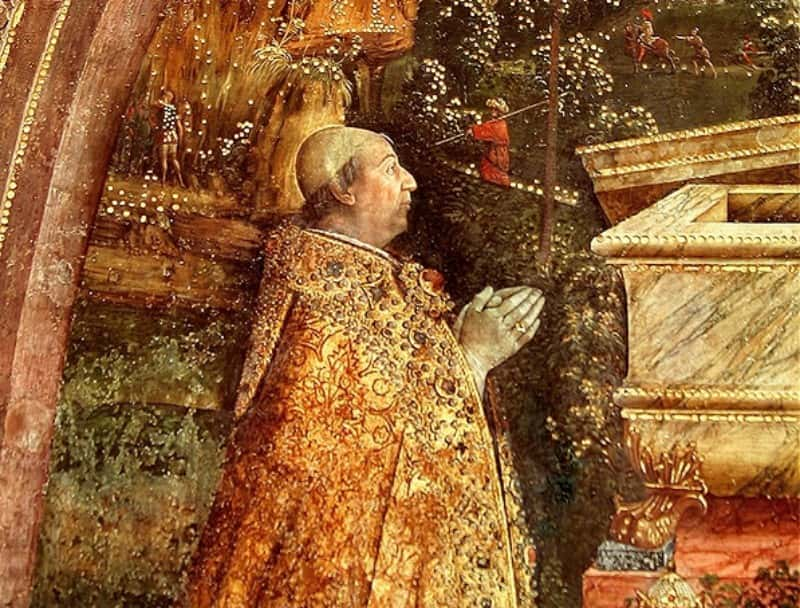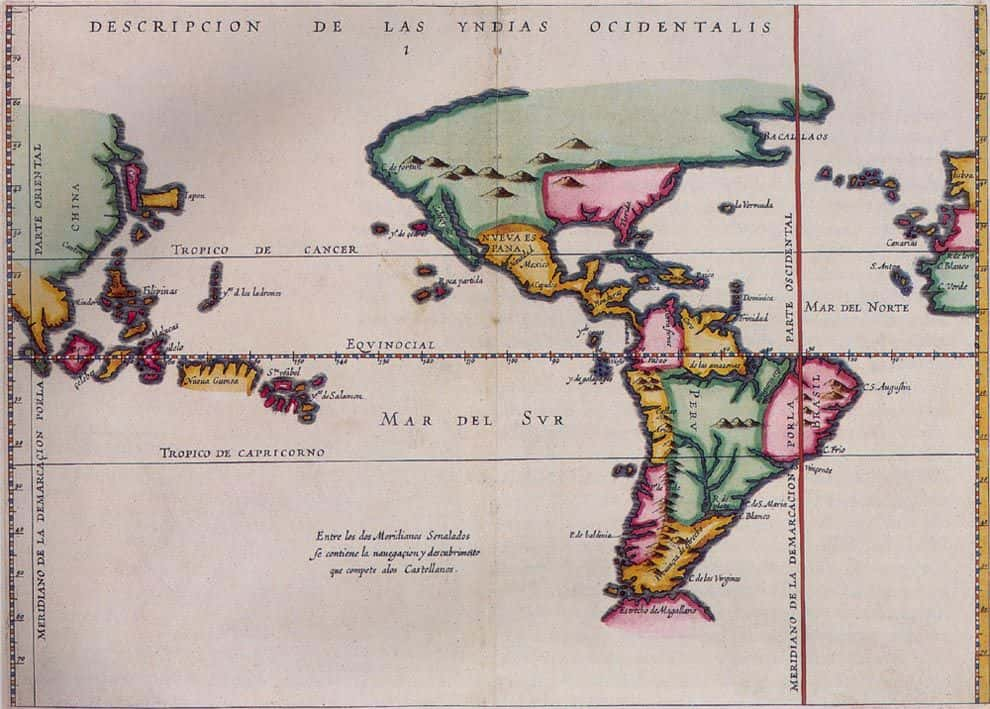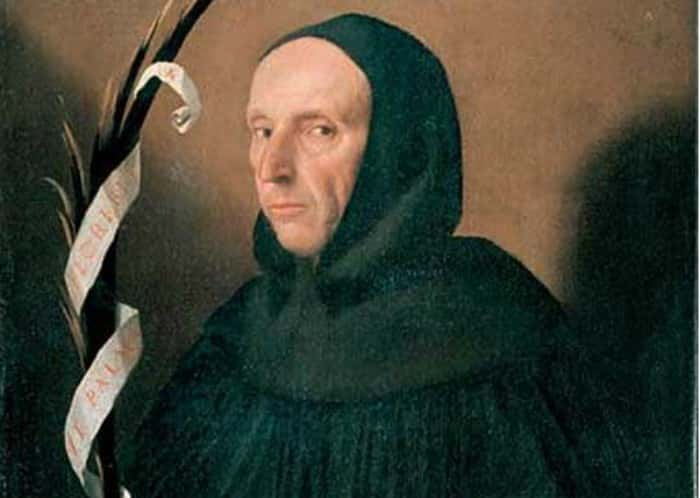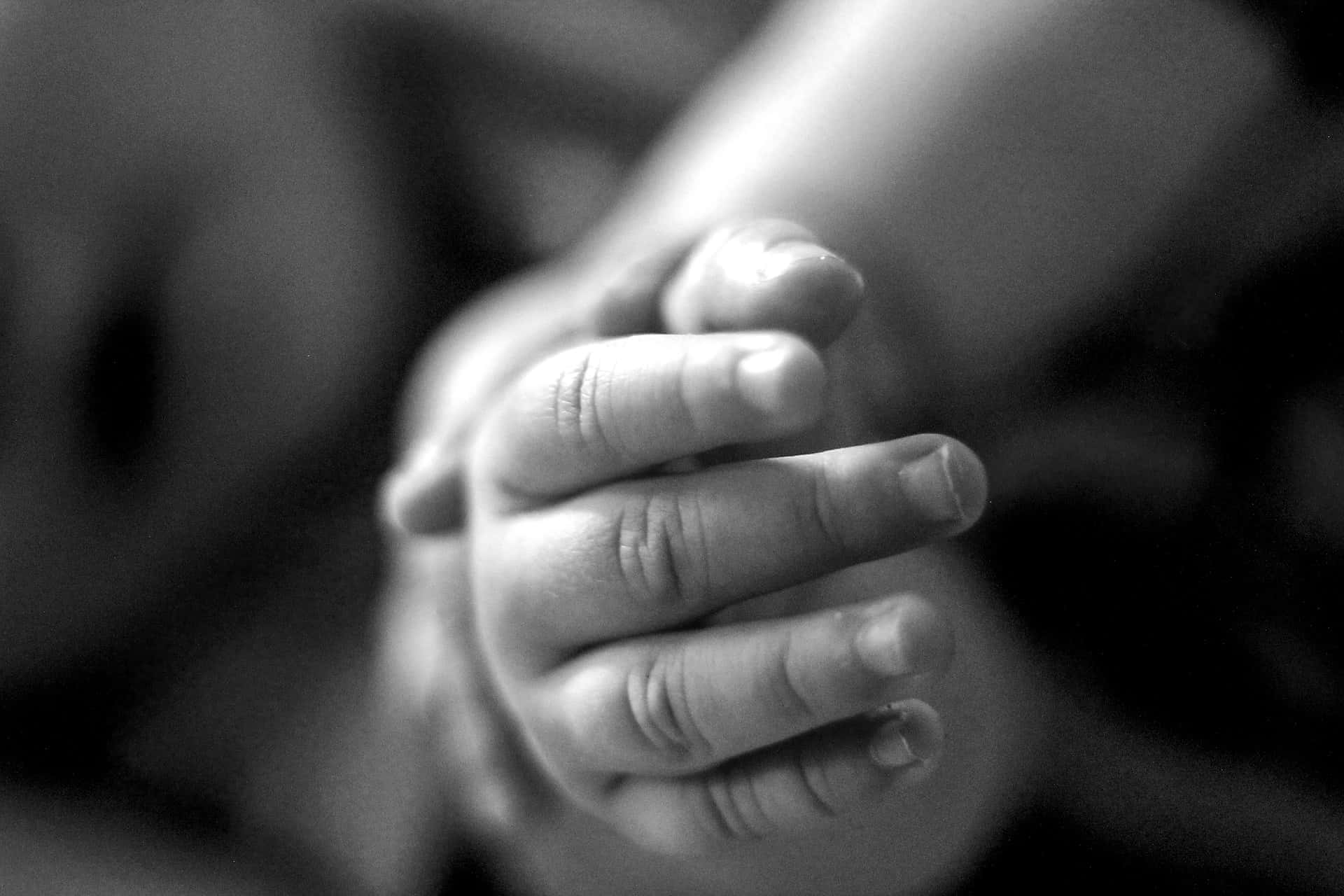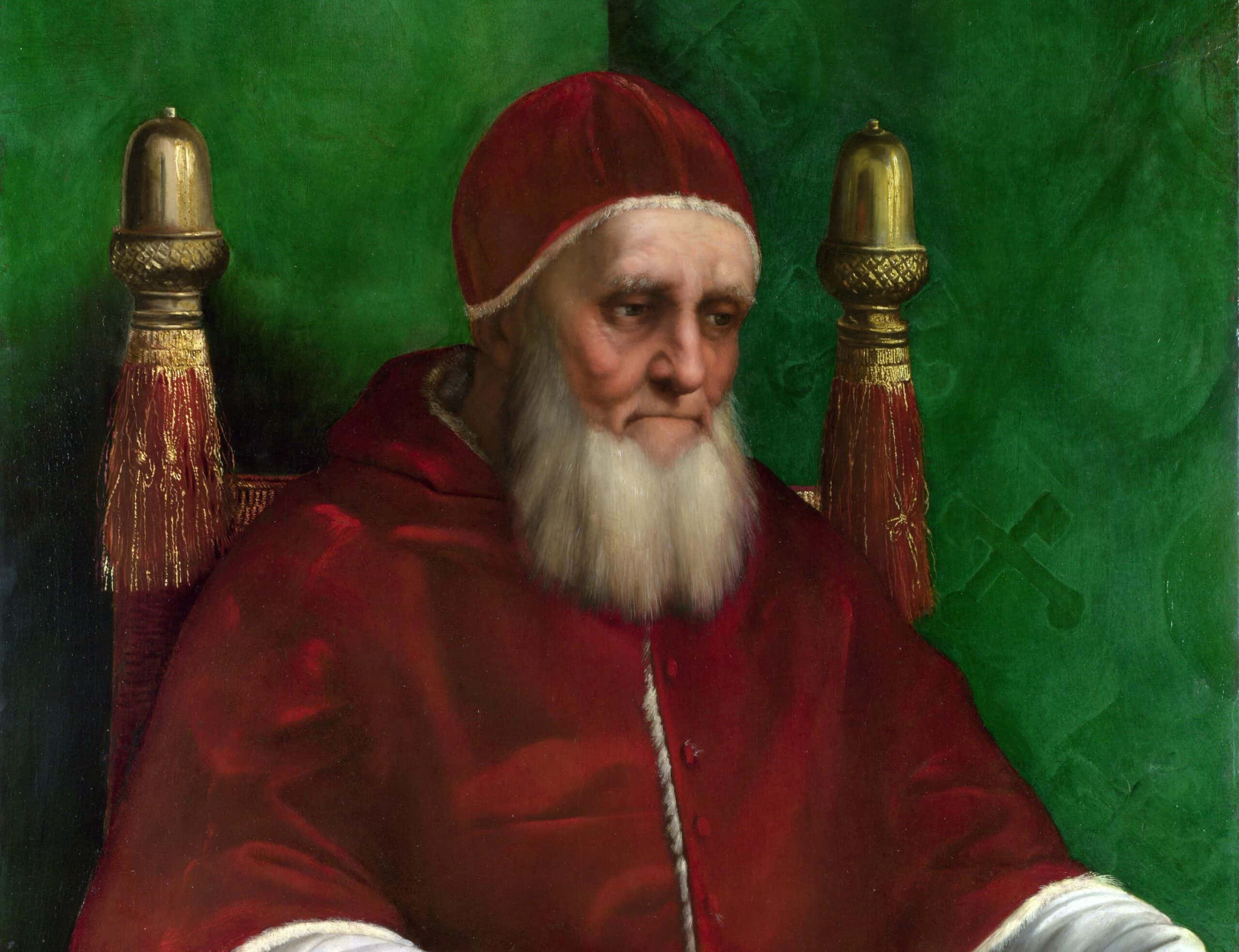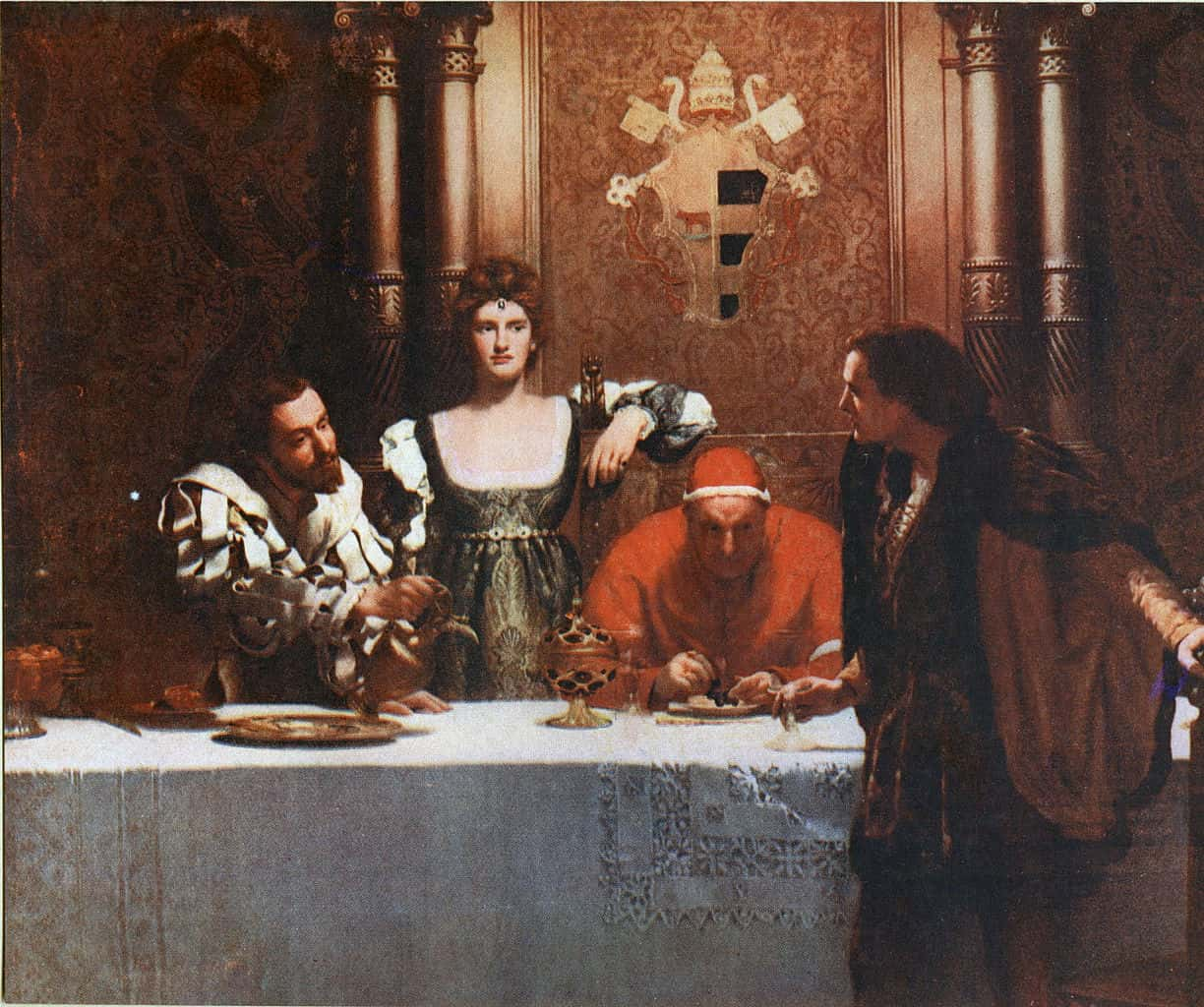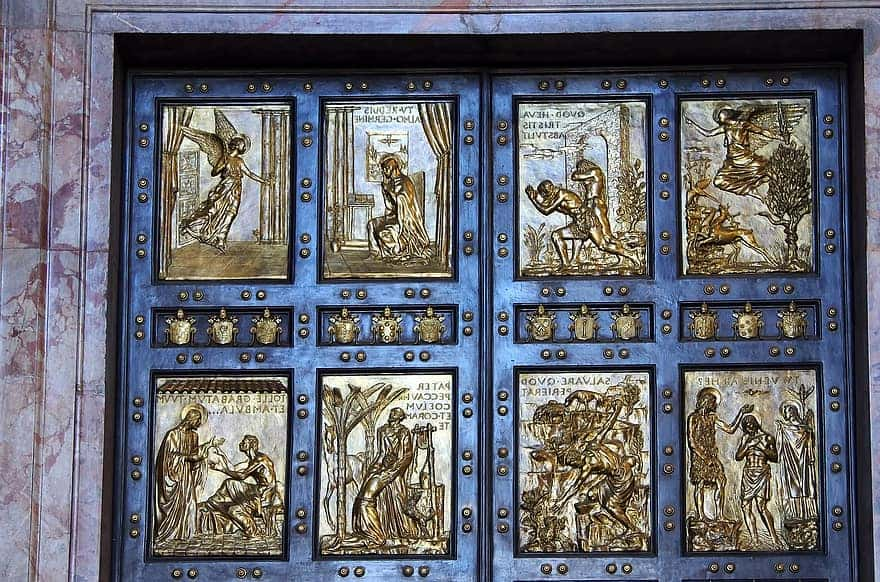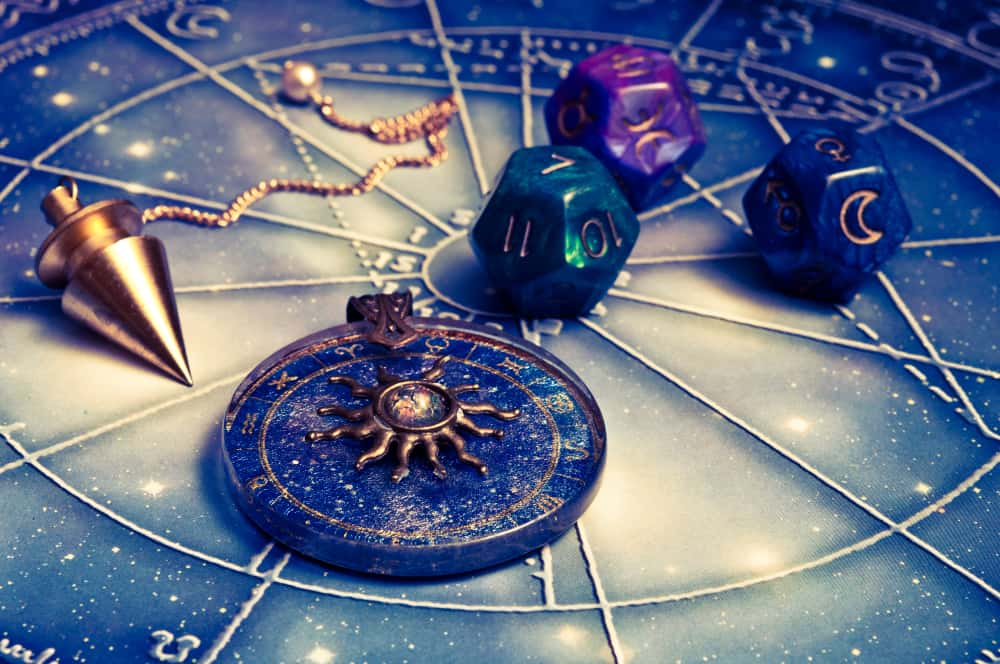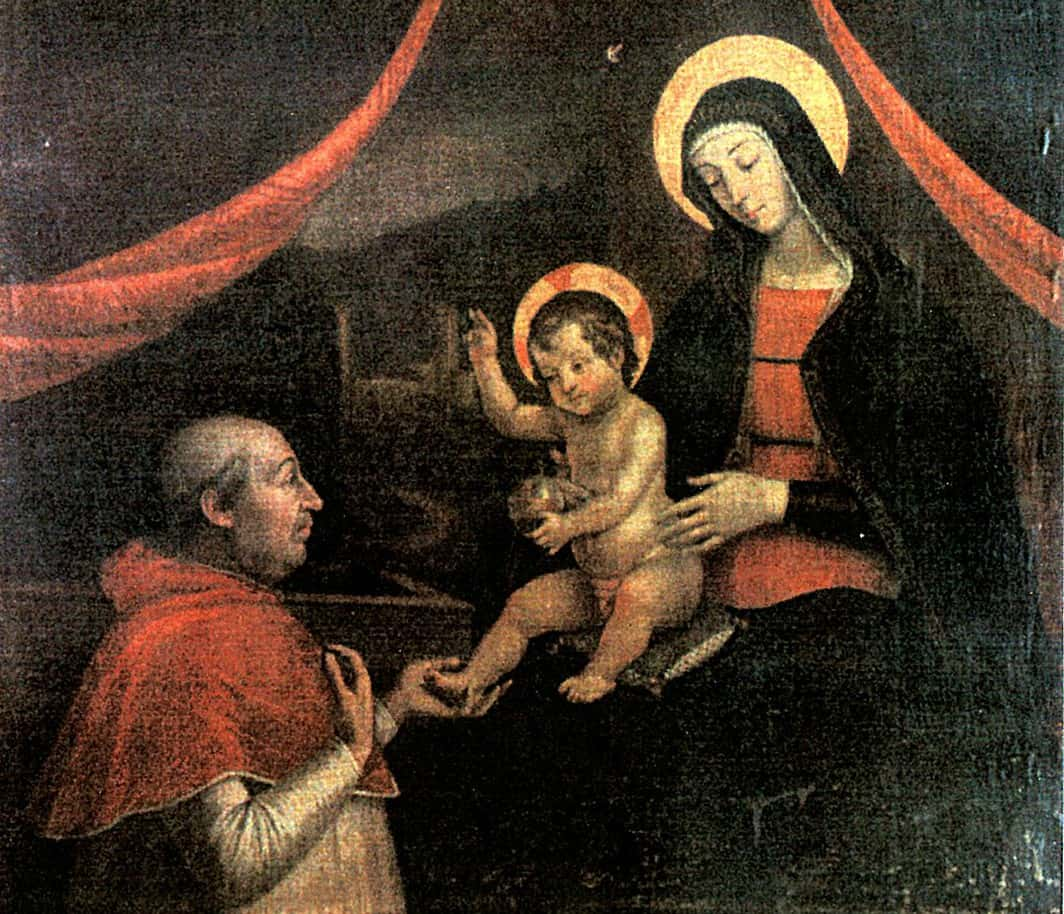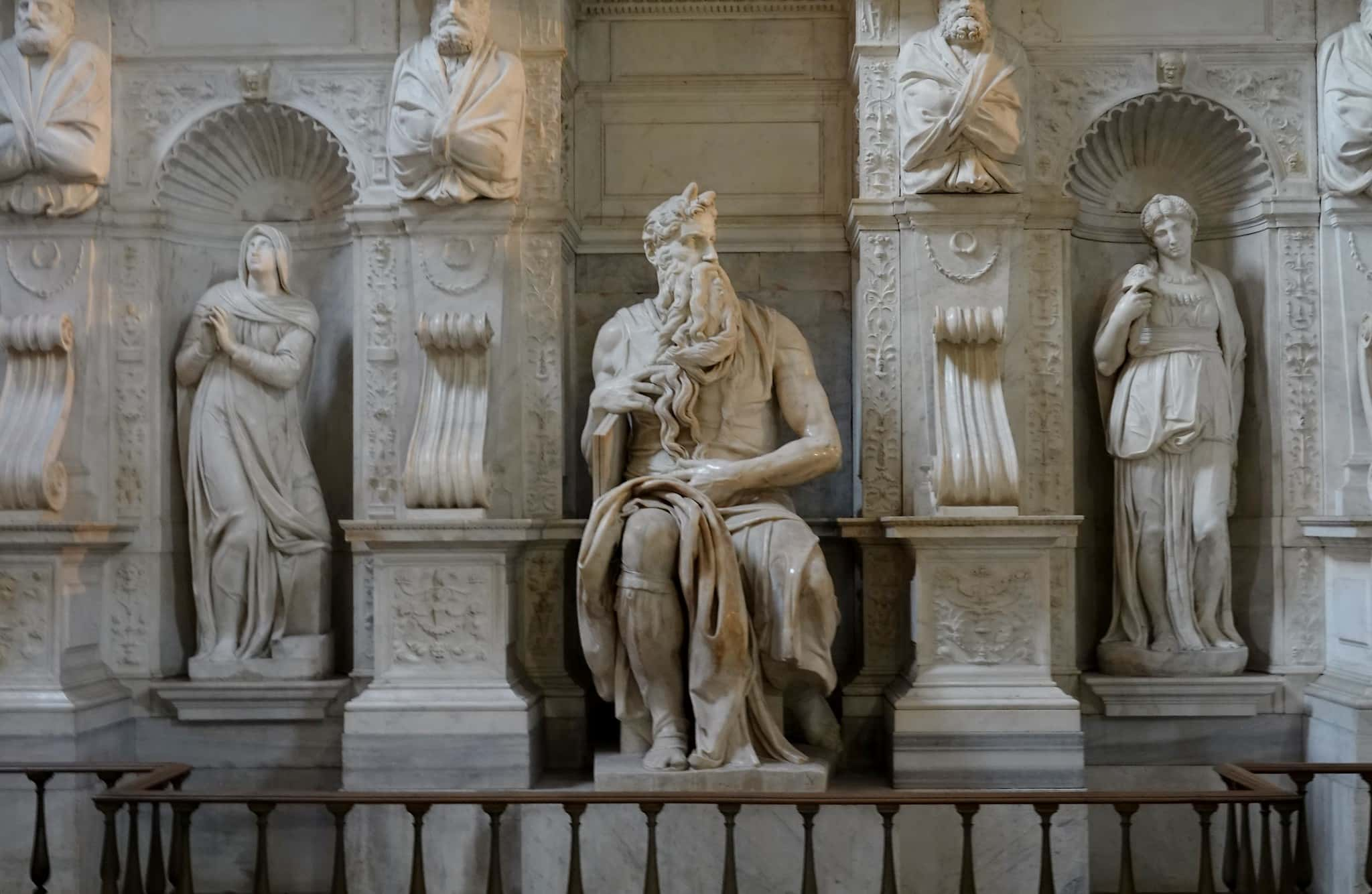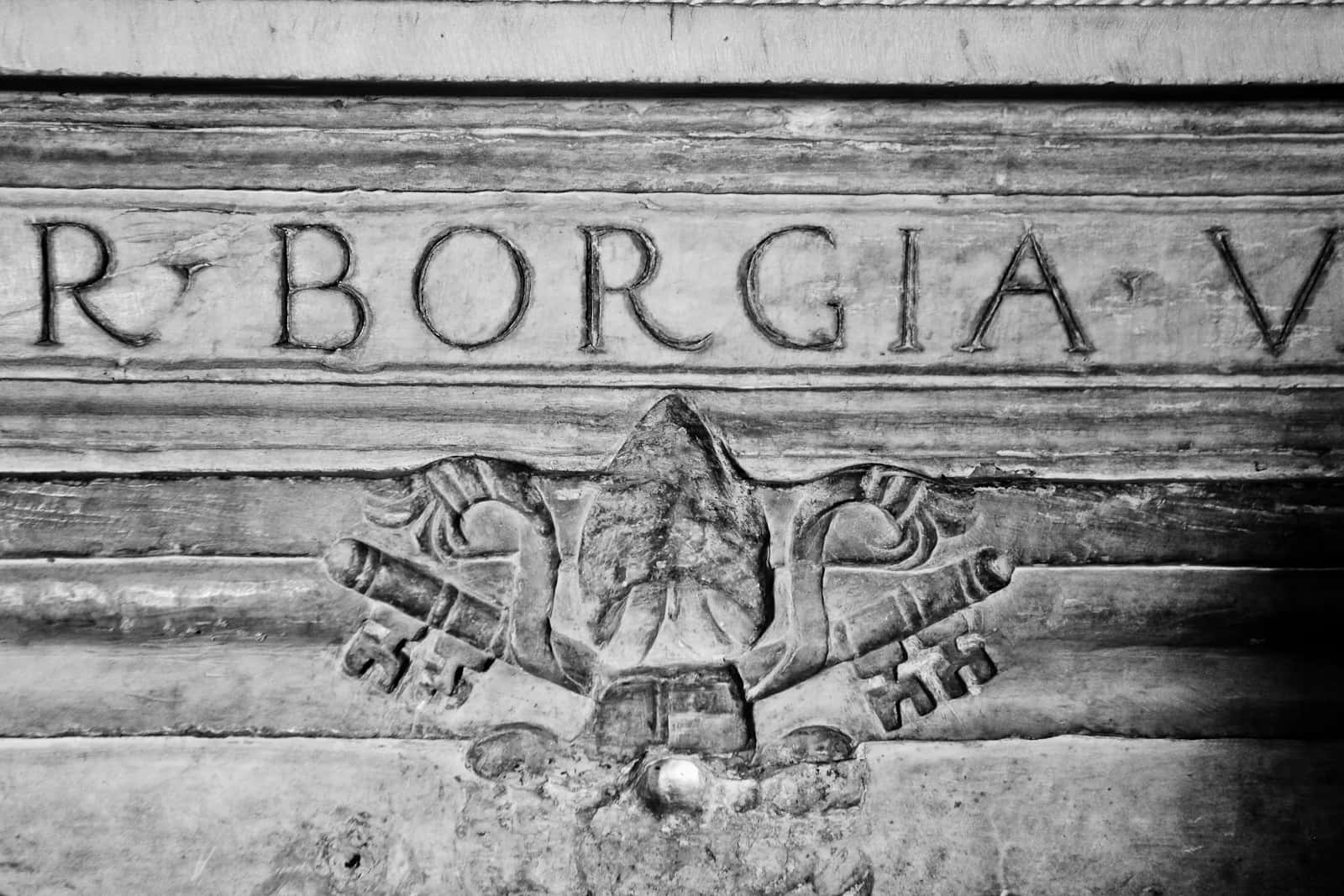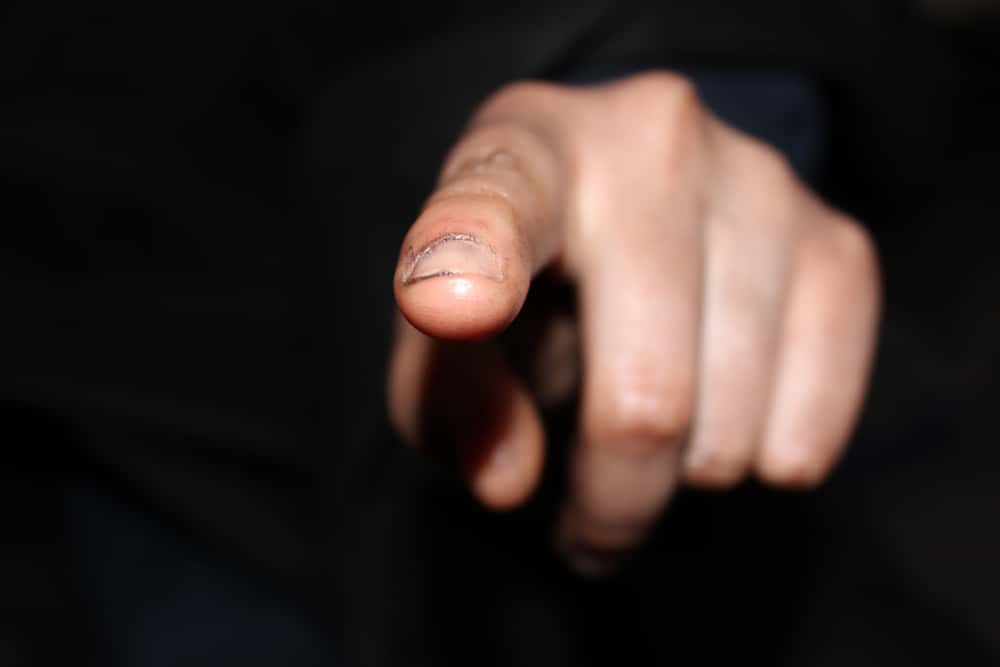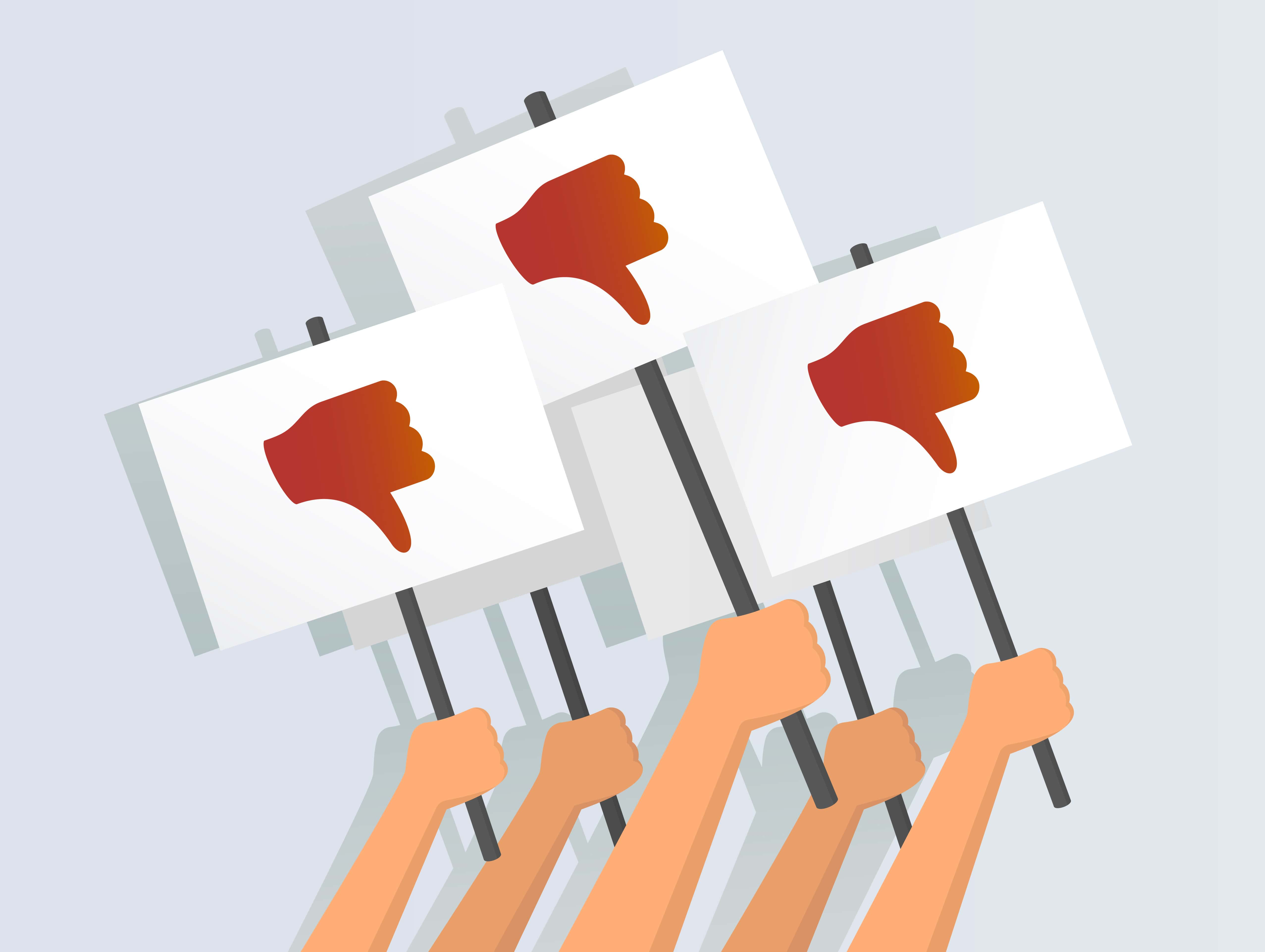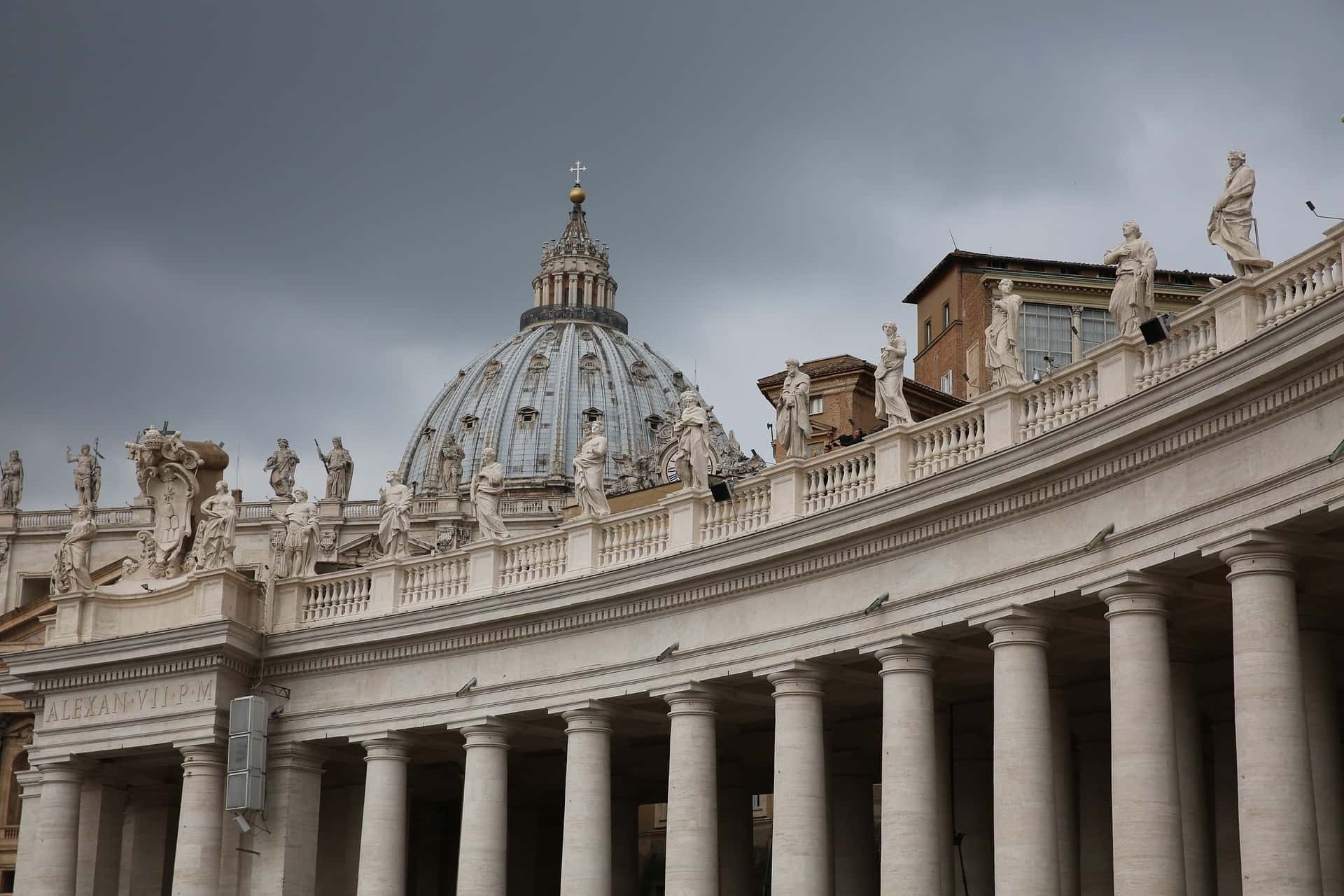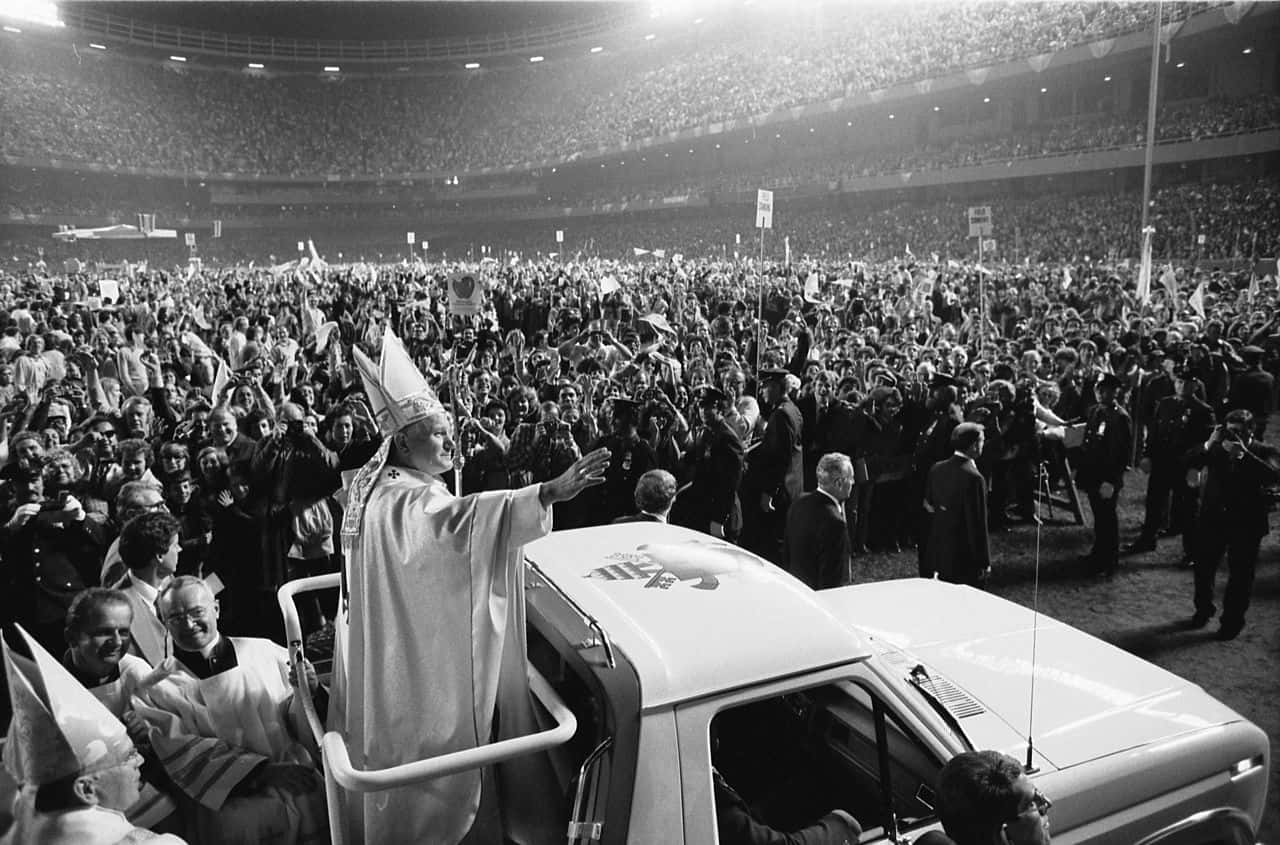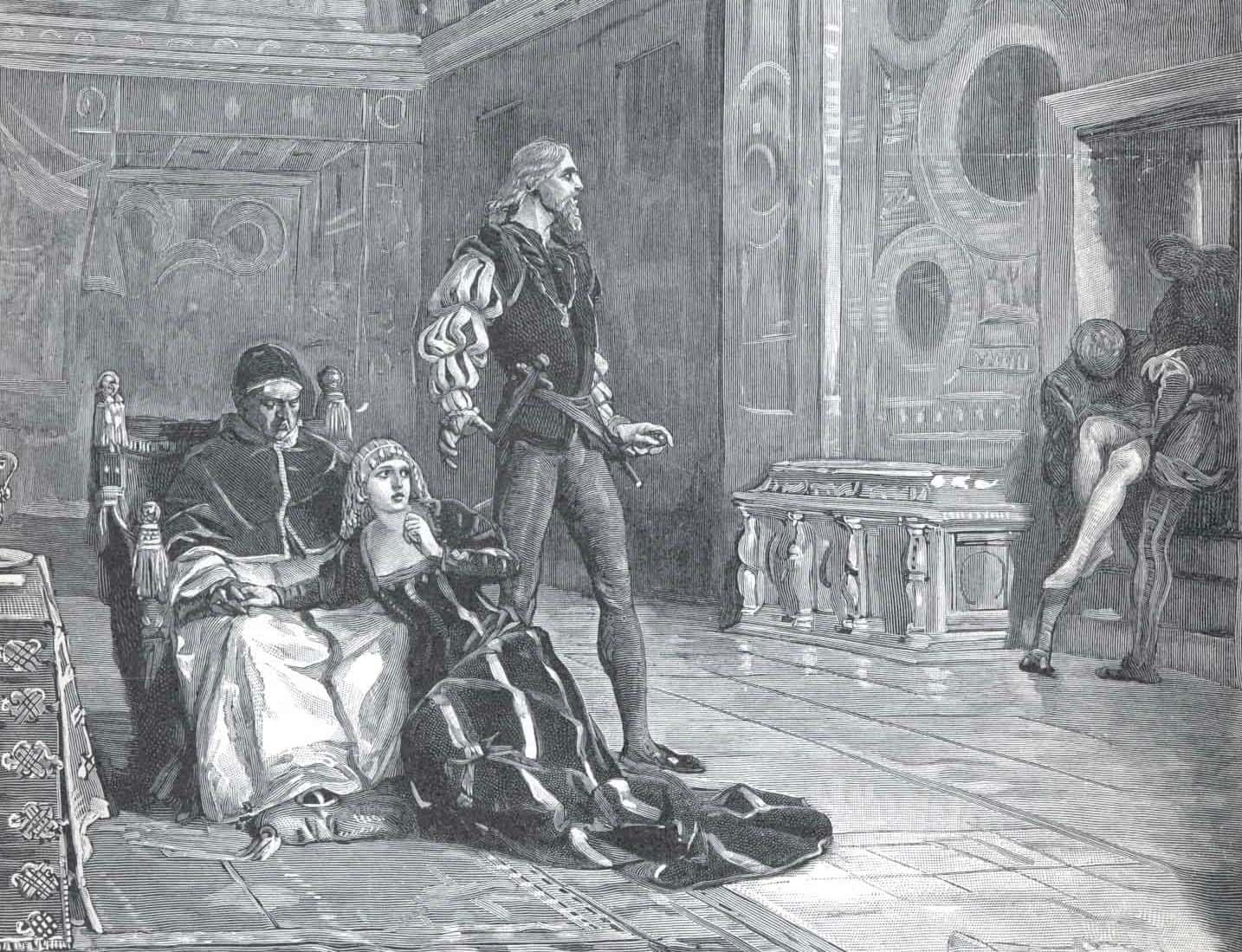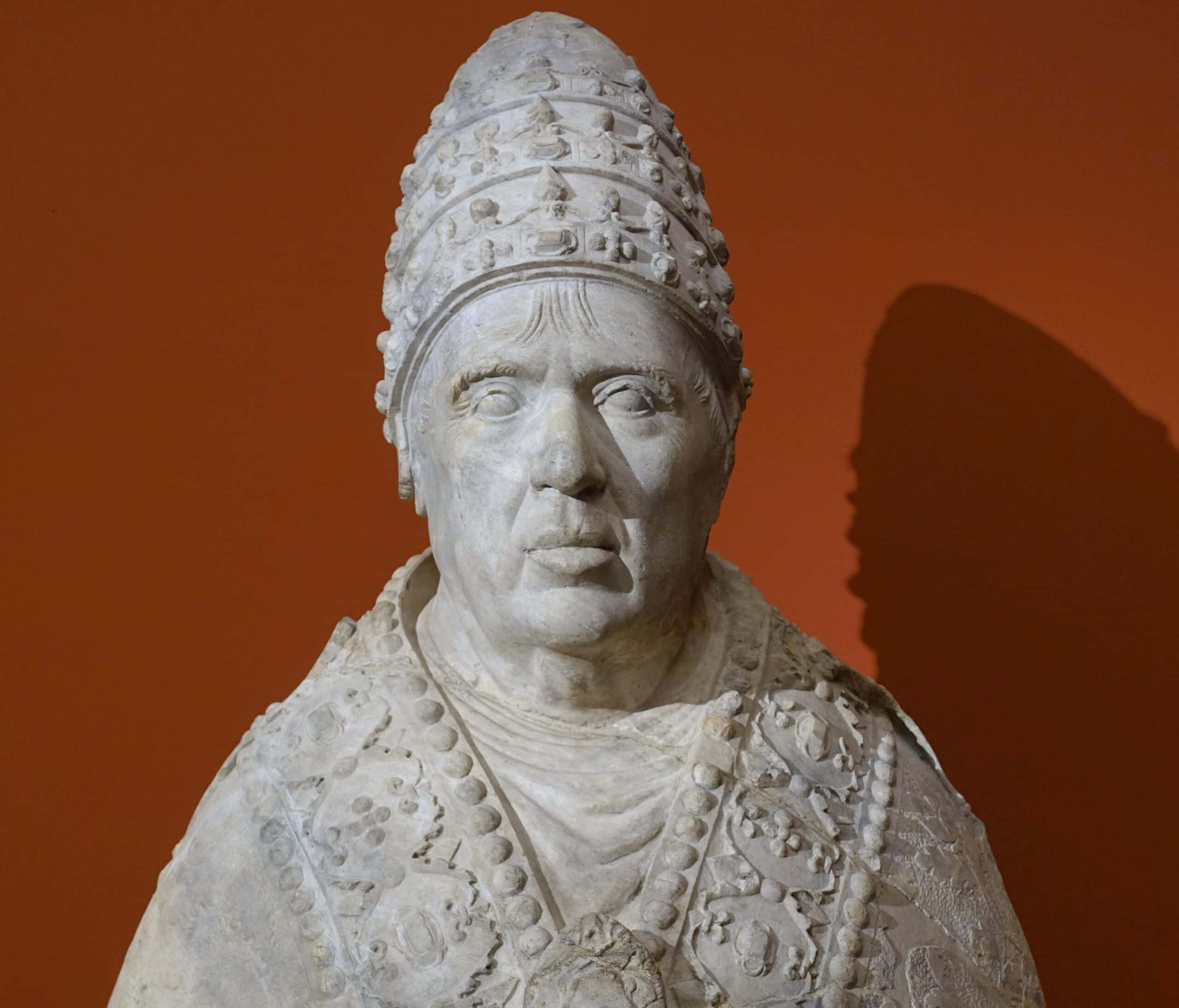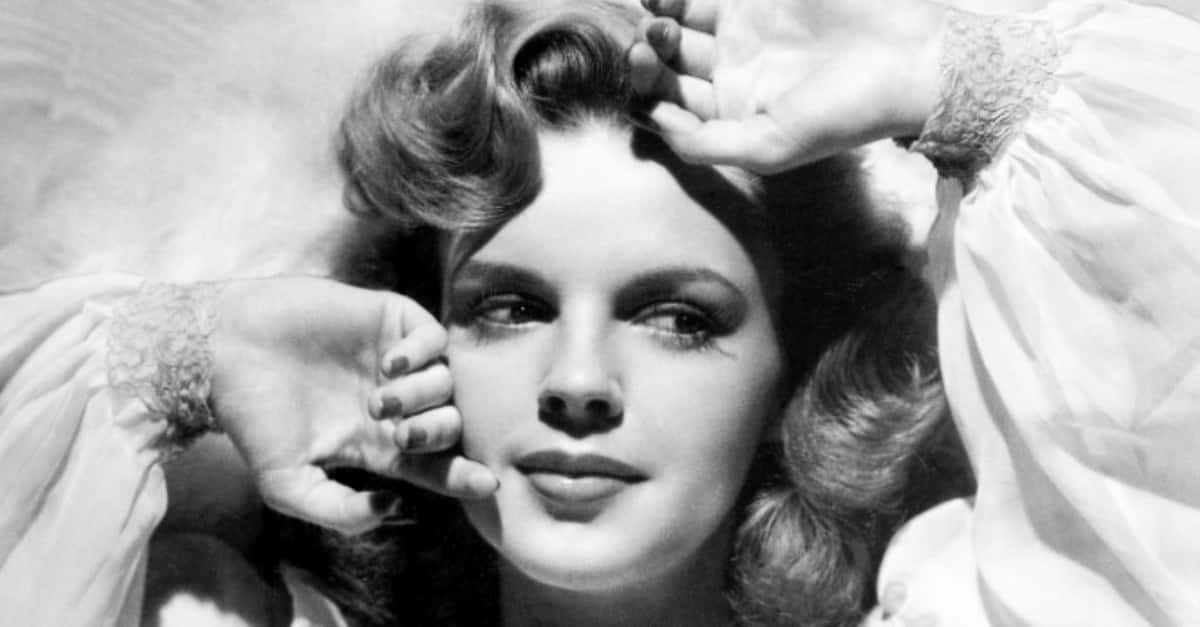In the long history of the corrupt and violent lineages of Europe, few families conjure up the cinematic images of power-hungry deviants like the Borgias. The patriarch of the long-maligned family was Pope Alexander VI, who used the power of the Vatican to further the ambitions and wealth of his own family. Rumors abound surrounding the Borgia Pope, painting him as a bloodthirsty tyrant willing to do anything for power and lust. For better or worse, Pope Alexander VI shaped the church, the country, and the world during his eleven years in power at the Vatican.
Alexander VI Facts
1. Alexander VI Was Born Into Spanish Nobility
Pope Alexander VI was born Rodrigo de Borja in Xàtiva, near Valencia, Spain to a family of Spanish nobles. Eventually, the family Italianized it to Borgia, the name that would become synonymous with depravity and violence.
2. He Wasn’t the Only Borgia Pope
Alexander VI was not the only Borgia to become pope. In fact, he was the second of three Borgias to lead the Catholic Church. His uncle was Pope Callixtus III, who assisted Alexander in his rise to power. Then, more than 150 years after Alexander’s ascension to Pope, his great-great-great-grandson would be elected Pope Innocent X.
3. He Ascended the Ranks Through Nepotism
After the election of his uncle Pope Callixtus III, Callixtus made Rodrigo Borgia a cardinal. Soon after, he went even further and made Rodrigo then vice-chancellor of the Catholic Church. This set Rodrigo up for a future ascension to the papacy. These nepotistic appointments were a common practice in the church at the time. They allowed the new pope to build a base of support at the Vatican. In fact, if anything, the Borgias weren't as bad as some other families in this regard.
4. He Kept Multiple Mistresses
In this era, it wasn't too scandalous for high-ranking church officials to have mistresses. However, Rodrigo made the rare and controversial move of openly acknowledging the children he fathered out of wedlock. He had two famous mistresses, Vannozza dei Cattanei and Giulia Farnese, both of whom were married noblewomen.
These two women had a total of seven children with Borgia, though he likely fathered more with other women less well-known to history. He clearly saw the value of bringing his children into the family. Many of his offspring became allies in his political ambitions as they grew up.
5. He Influenced the New Pope’s Election
While Rodrigo was still the most junior cardinal at the Vatican, Pope Callixtus III passed, and the cardinals had to elect a new pope. Rodrigo made a bold move, risking his power to play a key role in electing Pope Pius II. His power-play succeeded, making Rodrigo an ally to the new pope. As more popes rose and fell, Rodrigo amassed more power.
6. He Knew How to Throw a Wild Party
During his time as a cardinal, Rodrigo took part in wild and lascivious parties. Pius II warned Rodrigo to avoid such shindigs, as they were “unseemly” for someone of his position in the Vatican. The Pope even officially reprimanded Rodrigo for his behavior. Based on his later reputation, it's safe to say that Rodrigo didn't heed the Pope’s advice.
 The Borgias (2011–2013), Showtime Networks
The Borgias (2011–2013), Showtime Networks
7. He Approved the King of Spain’s Marriage
After assisting in the election of Pope Paul II, the Vatican sent Rodrigo to Spain as a papal legate. They gave him the power to either approve or deny the proposed marriage between Ferdinand and Isabella, the future King and Queen of Spain. The match would unify two Spanish regions, Ferdinand’s Aragon and Isabella’s Castile. Rodrigo approved the marriage, thus earning the future favor of King Ferdinand.
8. He Was Elected Pope After Four Votes
When Pope Innocent VIII passed, a conclave of cardinals met at the Vatican to elect a new pope. They considered several cardinals, including Rodrigo Borgia, Giuliano della Rovere (later Pope Julius II), and Ascanio Sforza. The conclave took three unsuccessful divided votes. Then, on the fourth vote, they unanimously elected Rodrigo Borgia. He received every vote except his own. Rodrigo Borgia was no more, and Pope Alexander VI had arrived.
 The Borgias (2011–2013), Showtime Networks
The Borgias (2011–2013), Showtime Networks
9. He Bought the Votes of Cardinals
Given the sudden turnaround in the votes in Borgia’s favor, many of Pope Alexander VI’s enemies accused him of buying the votes of other cardinals. This rumor followed him for the rest of his life. He allegedly offered fellow candidate Ascanio Sforza four mules loaded with silver if he threw his support behind the Borgia pope’s ascendency.

History's most fascinating stories and darkest secrets, delivered to your inbox daily.
10. He Wasn’t the Only Candidate Buying Votes
Rodrigo Borgia may not have been the only one trying to buy power at the Vatican. Some historical accounts report that King Charles VIII of France and the Doge of Genoa financed a combined 300,000 ducats to influence the election in favor of Giuliano della Rovere. However, even cardinals who could normally be swayed shook their heads at the French interfering with Vatican matters.
11. He Used His Daughter as a Political Pawn
Once Rodrigo had risen to power in the Vatican, he started using his young daughter Lucrezia as a bargaining chip with power-hungry families wishing to align their fortunes with his. Cardinal Ascanio Sforza said at the time, “There are many who long to marry into the pope’s family via his daughter and he lets many think they have a chance. Even the King of Naples aspires to win her hand!” Cardinal Sforza ended up winning this game of power himself.
12. He Made His Relatives into Cardinals
Pope Alexander was not one to break with a tradition of nepotism. He elevated at least ten relatives to the College of Cardinals. This included his own son Cesare and his mistress’ brother, Alessandro Farnese. Farnese was later elected Pope Paul III.
13. He Was Accused of Selling Church Offices
Pope Alexander’s enemies also accused him of simony, the selling of church offices, formally classed as a sin in the Catholic Church. This was another common sin among the popes, who would often promise promotions to church officials in exchange for their votes in the election. In this respect, Pope Alexander played the game like his fellows, and given his reputation, he was probably past caring about formally classed sins.
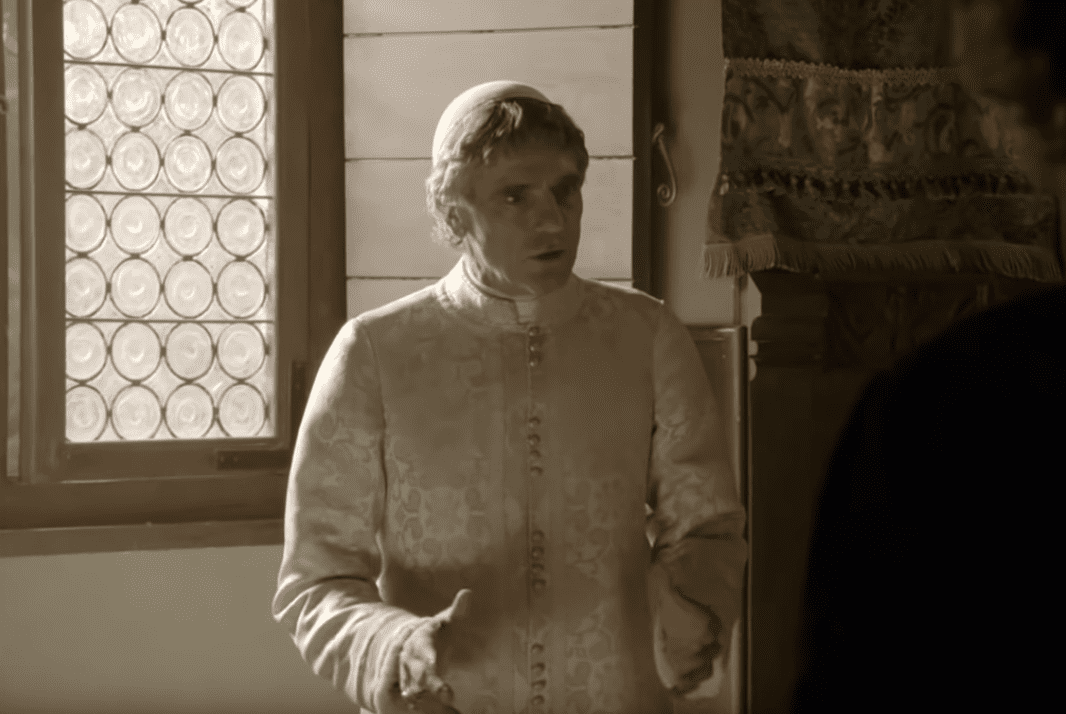 The Borgias (2011–2013), Showtime Networks
The Borgias (2011–2013), Showtime Networks
14. He Had His Junk Verified by the Vatican
According to an account of Pope Alexander’s consecration ceremony, the church officials had to verify that he was male. For centuries, the myth that a Pope John had secretly been a woman circulated through the Vatican, and the Church was allegedly wary such a case might happen again. Rodrigo Borgia thus had to submit to a body examination before he could take the highest office in the church.
15. He Took Land for His Family
Alexander didn’t stop his nepotism at naming cardinals. He also carved out fiefdoms from land in the Papal States and the Kingdom of Naples for his own children to preside over. This practice quickly made an enemy of Ferdinand I, the King of Naples.
16. He Presided Over Columbus’ Discovery
When Alexander became pope in 1492, his newfound power coincided with Christopher Columbus’ “discovery” of the New World for Europe. Months after news of the discovery, Spain and Portugal had already started fighting over the land in the New World. Portugal claimed a previous papal decree gave the New World to Portugal. This put the Vatican in the middle of a world-making decision.
17. He Arranged a Political Marriage for Lucrezia
When Lucrezia Borgia was 13 years old, Pope Alexander arranged her marriage to Giovanni Sforza, nephew of Cardinal Ascanio Sforza, hoping to court Sforza’s powerful family as allies. Cardinal Sforza had proved his worth by playing an influential role in supporting Alexander’s election. In addition, the Cardinal’s brother was the Duke of Milan, and an alliance between the families would give the Borgias a grasp on power in northern Italy. However, the marriage would soon come back to haunt them.
18. He Used the New World as a Chess Piece
When Ferdinand I of Naples sought to make an alliance against Pope Alexander, he successfully approached Florence, Milan, and Venice. Then Ferdinand sought to ally with Spain, but Spain refused. Spain wanted to remain on good terms with the Vatican to stake their claim on the New World through the pope, a gamble that worked in their favor.
19. He Divided the New World
Pope Alexander stepped into the middle of the New World conflict between Spain and Portugal and decreed that any newly discovered land 100 leagues west of the Portugal-controlled Cape Verde islands would belong to Spain. He followed this with another decree giving any lands already belonging to "India" (remember how they thought North America was India?) over to Spain, no matter where they were located. Portugal wasn’t going to take that.
20. His Decision Led to a World-Making Treaty
Tired of Pope Alexander’s meddling, Portugal decided to bypass the pope and negotiate directly with Spain for land in the New World. They ended up signing the Treaty of Tordesillas, which equally divided the New World between the two countries. This treaty ended up having huge historical consequences: It's the reason Brazil—barely east of the Papal Line—still largely speaks Portuguese while the other South American countries speak Spanish.
21. His Son-in-Law Refused to Ally with Him
In 1494, the King of France, Charles VIII, invaded Italy. Ludovico Sforza, Duke of Milan and uncle of Giovanni Sforza, made an alliance with France against Pope Alexander. Giovanni refused to turn against his uncle to support the Borgias, betraying the purpose of the political marriage Alexander arranged. Lucrezia’s brother, Cesare, warned Lucrezia that Giovanni would not survive that decision.
Lucrezia may have warned Giovanni of his impending doom, and Giovanni fled to Milan in disguise. But the Borgias still had dark plans in store for him.
 The Borgias (2011–2013), Showtime Networks
The Borgias (2011–2013), Showtime Networks
22. He Sacrificed His Son to Keep His Power
By the end of the year, Charles VIII’s forces had reached Rome, alongside French-aligned cardinals and Alexander’s rival Giuliano della Rovere. Facing the looming threat that the French would depose him as pope, Alexander opened negotiations with the French king. He agreed to send his son Cesare to Naples with the French army as an insurance policy, essentially making Cesare a prisoner.
Alexander also agreed to turn over Cem Sultan, a pretender to the Ottoman throne who was being held in Rome, as well as surrendering the city of Civitavecchia to Charles. King Charles left, and Rodrigo got to stay in power.
 The Borgias (2011-2013), Showtime Networks
The Borgias (2011-2013), Showtime Networks
23. He Sent an Army to Subdue His Enemies
After Alexander successfully navigated the French invasion, Cesare escaped captivity and returned to Rome. Alexander then put his son in charge of a Vatican-aligned army to bring the disarrayed nearby Papal States into order. Cesare went on the warpath and settled much of Central Italy under the power of the Borgias. He then marched on Naples to wrest power from his once-allies. Alexander left Rome to divide up the land he was busy conquering, and left Lucrezia behind as his regent.
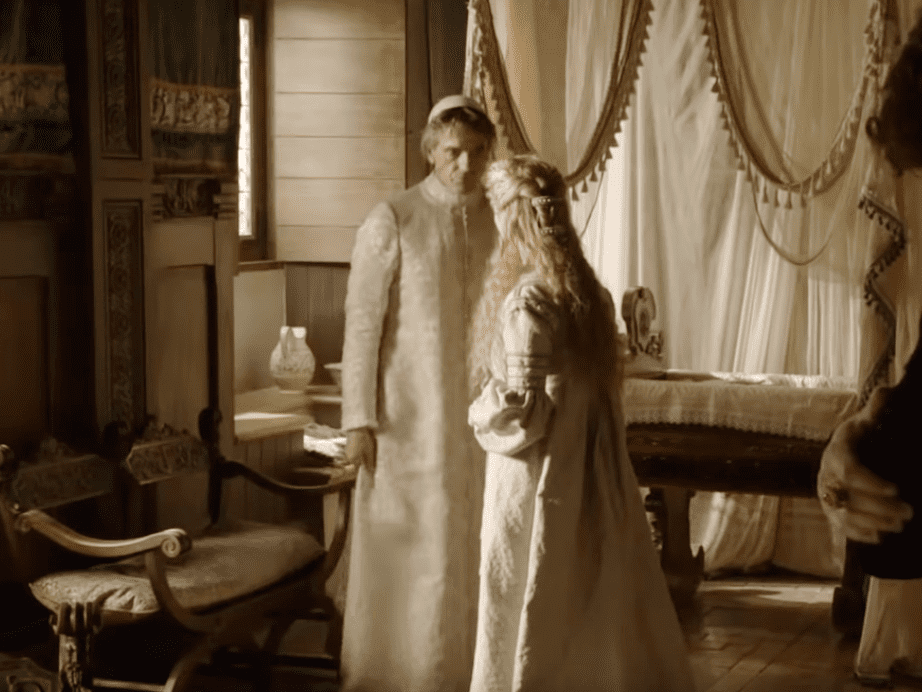 The Borgias (2011–2013), Showtime Networks
The Borgias (2011–2013), Showtime Networks
24. He Banned a Reformer from Preaching
Girolamo Savonarola, a Dominican friar, led a religious movement in Florence during Alexander’s papacy. He focused on reforming the Christian faith, and that was bad news for Alexander. Savonarola did everything in his power to wipe vice from his city, denouncing the corruption and tyrannical rule of the clerics. Pope Alexander thought little of the friar until Florence refused to join his Holy League to fight the French after their invasion.
He blamed this on the reformist influence of Savonarola, and he banned the friar from preaching. When Savonarola didn’t obey, Alexander excommunicated him—but that wasn't enough for this bloodthirsty pope. Not long after, government officials condemned and hanged Savonarola.
25. He Annulled Lucrezia’s Inconvenient Marriage
When the Sforzas ultimately disappointed Alexander’s ambitions, he declared that Giovanni Sforza was impotent and annulled his marriage to Lucrezia on those grounds. Giovanni fought the annulment, but finally gave in when Pope Alexander agreed to let him keep Lucrezia’s sizeable dowry. However, even that didn’t make Giovanni disappear into history quietly.
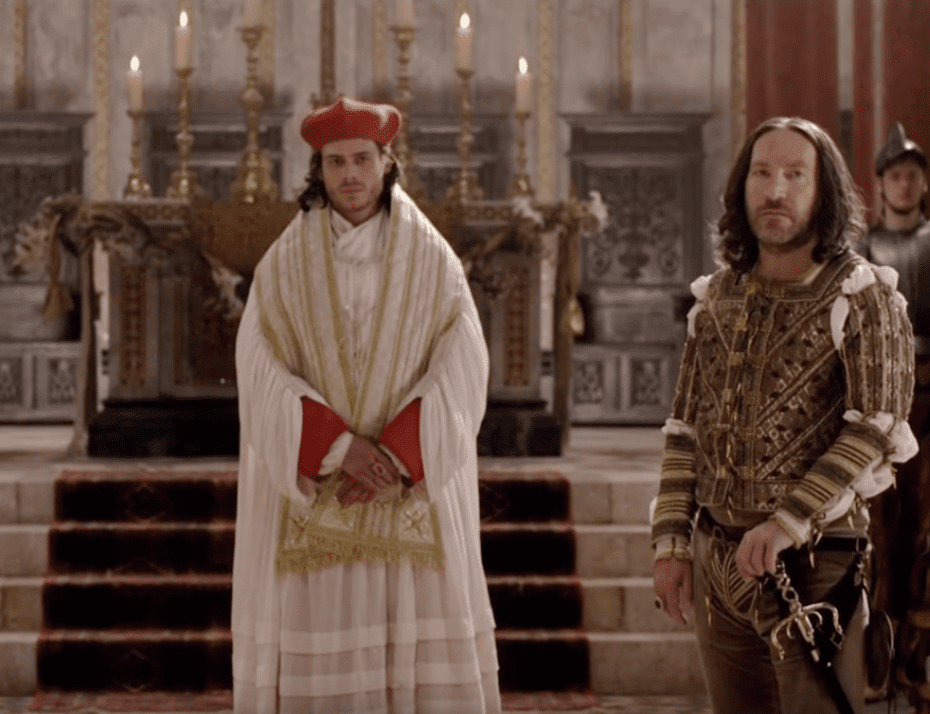 The Borgias (2011–2013), Showtime Networks
The Borgias (2011–2013), Showtime Networks
26. He Arranged a Second Mercenary Marriage
Alexander VI arranged a second marriage for Lucrezia after the annulment, this time with Alfonso of Aragon, the illegitimate son of the King of Naples. He intended for this union to pave the way to a marriage between Cesare and Carlotta, the King of Naples’ daughter. If Alexander tied himself to Naples, he would gain a crucial ally against France. Fortunately for Lucrezia, she was now 18 and seemingly happy with the match. Unfortunately for Lucrezia, their union was doomed.
 The Borgias (2011–2013), Showtime Networks
The Borgias (2011–2013), Showtime Networks
27. He May Have Fathered Lucrezia’s Mystery Child
In 1498, Giovanni Borgia was born into the House of Borgia, though to whom he was born is still a debate. Lucrezia Borgia is thought to be his mother, perhaps through her lover Perotto Calderon—but much darker rumors persisted. Many believed he was the child of a relationship between Lucrezia and either her father Pope Alexander or her brother Cesare. Lucrezia may not have been the mother at all, and the child could have been from Pope Alexander’s relationship with an unknown woman.
28. He Claimed He and His Son Fathered the Same Child
In 1501, Pope Alexander VI finally publicly addressed the birth of Giovanni Borgia, but only in the most confusing way possible. He issued two papal decrees on the same day. One claimed Giovanni was Pope Alexander’s own son. The other claimed Giovanni was Cesare’s son, and therefore Alexander's grandchild. These decrees only stoked the flames of those who claimed Giovanni was the product of a rumored relationship between Alexander and his own daughter.
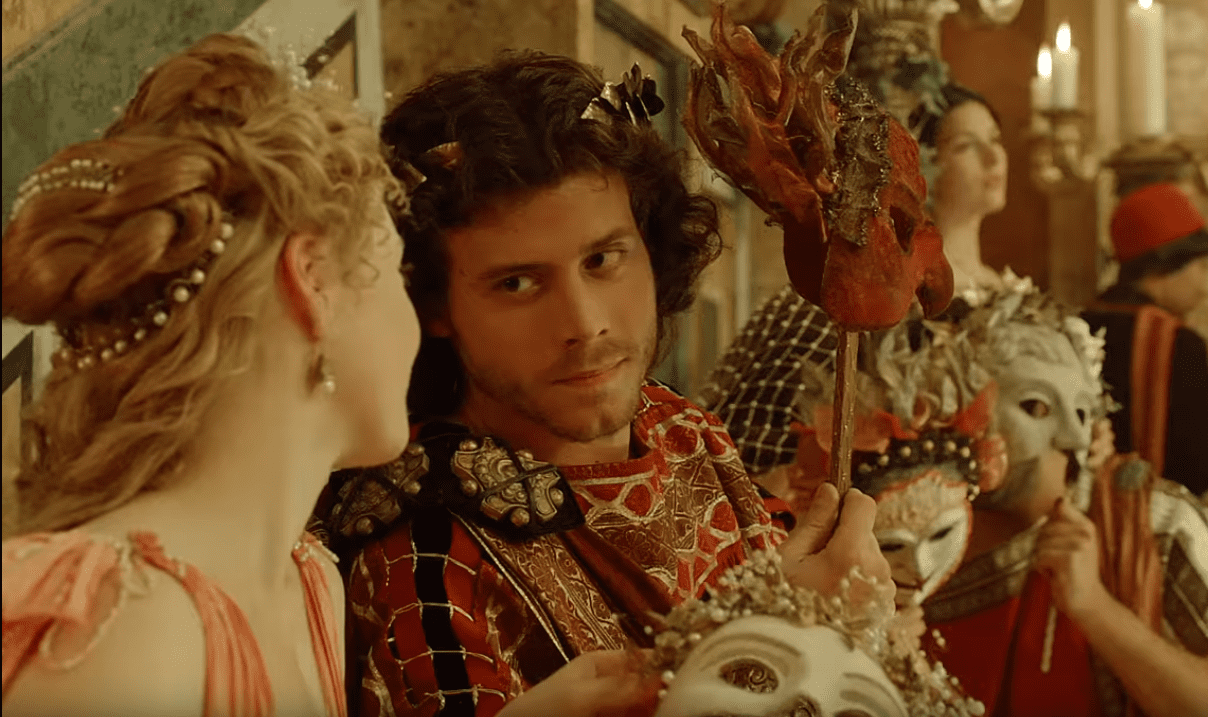 The Borgias (2011–2013), Showtime Networks
The Borgias (2011–2013), Showtime Networks
29. He Shared a Mistress with a Rival
Pope Alexander VI was far from the only church official to indulge in relationships the church frowned upon. One of his primary mistresses, Vannozza dei Cattanei, allegedly had a previous relationship with another cardinal, Alexander’s rival Giulio della Rovere. Rovere was later elected Pope Julius II, Borgia’s successor, making dei Cattanei the mistress of two popes.
30. He Held a Sordid Party at the Vatican
In 1501, Pope Alexander VI and his son Cesare allegedly held a shocking all-night party in the pope’s official residence. The Borgias hired 50 concubines for the event. On the night in question, they had these women disrobe and pick up chestnuts strewn on the floor. Father and son also allegedly held a competition, with a prize going to the man who could use the services of the most women that night.
However, though it's a wild tale, modern historians doubt its veracity. Only Johann Burchard, the papal master of ceremonies, wrote about the banquet. The story fit in with Pope Alexander’s sordid reputation, though, so it became part of the Borgias’ scandalous lore, true or not.
31. He Profited from a Cardinal’s Passing
In 1503, a Venetian cardinal suddenly succumbed to a sudden and unidentified illness. Wasting no time, Pope Alexander VI sent his personal forces cardinal's estate to collect 150,000 ducats. He also sent nine new cardinals to replace the late official, ensuring the local cardinals would be loyal to him. This all seemed remarkably convenient for Alexander, so it's little wonder most people assumed the Pope himself poisoned the cardinal.
 The Borgias (2011–2013), Showtime Networks
The Borgias (2011–2013), Showtime Networks
32. He May Have Disposed of Enemies with a Mystery Concoction
The Borgias supposedly dosed enemies to get them out of the way, and their method of choice was the mystery substance Cantarella. Historians still debate exactly what Cantarella was. It could have been cantharidin, a powder made from blister beetles that causes chemical burns. The most likely theory is that it was an arsenic compound. Arsenic was a well-known and effective method of silencing one's enemies at the time.
Another rumor claimed the Borgias created their mystery compound by sprinkling arsenic on the entrails of pigs. Historians still can't say for sure, but regardless, this secret substance likely allowed Pope Alexander VI to remove some inconvenient people from his path to power.
33. He Started an Ongoing Roman Tradition
Pope Alexander VI presided over a rare Jubilee Year in 1500, an event that took place only every 50 years. During this time, the Church encouraged the residents of Rome to confess their sins by passing through the “Holy Doors” opened in Rome’s basilicas. Alexander himself began a longstanding formal rite of opening the Holy Doors to mark the beginning of the Jubilee year, a tradition still practiced to this day.
34. His Reputation May Be Mostly Rumor
While the Borgias are now synonymous with deviance, there may be more to the story. Alexander ruined Giovanni Sforza's life and reputation—and the spurned man might have sought revenge. Modern historians believe that many of the most shocking rumors about Alexander, such as his affair with his own daughter, might have come from Sforza.
So, at the end of the day, Sforza walked away with his life, Lucrezia’s dowry, and a decisive blow to the Borgia’s reputation. Honestly, not that bad of a deal.
35. He Received a Grim Prediction
Right before his Jubilee year, an astrologer predicted that misfortune would soon befall Alexander VI. The astrologer failed to specify how many misfortunes were about to hit him—and it was a lot.
36. He Nearly Died In a Terrible Accident
During a meeting in June of 1500, a strong wind knocked down a chimney over the papal throne, where Alexander VI was seated at the time. Three people lost their lives in the accident, and Alexander himself was injured—but this was just the beginning.
 The Borgias (2011–2013), Showtime Networks
The Borgias (2011–2013), Showtime Networks
37. He Allied with an Old Enemy
Cesare’s planned marriage to Carlotta of Naples fell through, and Alexander VI instead saw an opportunity to ally with the newly crowned King of France, Louis XII. Alexander arranged for Cesare to wed a relative of the French king, but this left Lucrezia’s husband Alfonso high and dry. France and Naples were enemies, and now Alexander was allying himself against Alfonso’s family in Naples. Talk about trying to have your cake and eat it too.
 The Borgias (2011–2013), Showtime Networks
The Borgias (2011–2013), Showtime Networks
38. He May Have Ordered His Son-in-Law’s Attack
The same year Cesare married to seal the French alliance, unknown culprits attacked Alfonso of Aragon with a knife. Alexander had Alfonso taken to the Vatican to recover. He assigned a dozen guards to Alfonso's quarters to protect him against a rumored plot—a lot of good that did him. A month later, someone entered Alfonso’s room at night and asphyxiated him in his bed at the Vatican. Most people suspected Cesare was behind the dark crime, though no one could prove it.
39. He Left Lucrezia in Charge of Church Affairs
In a purported incident in 1501, Pope Alexander VI shocked the Vatican by allowing Lucrezia to take his place in a meeting he could not attend. This meant he was not only allowing a woman to preside over the affairs of the Catholic Church, but the illegitimate daughter of a pope no less! In later years, this became fuel for claims that Lucrezia was dosing Borgia rivals, as her attendance of papal events gave her access to many powerful men.
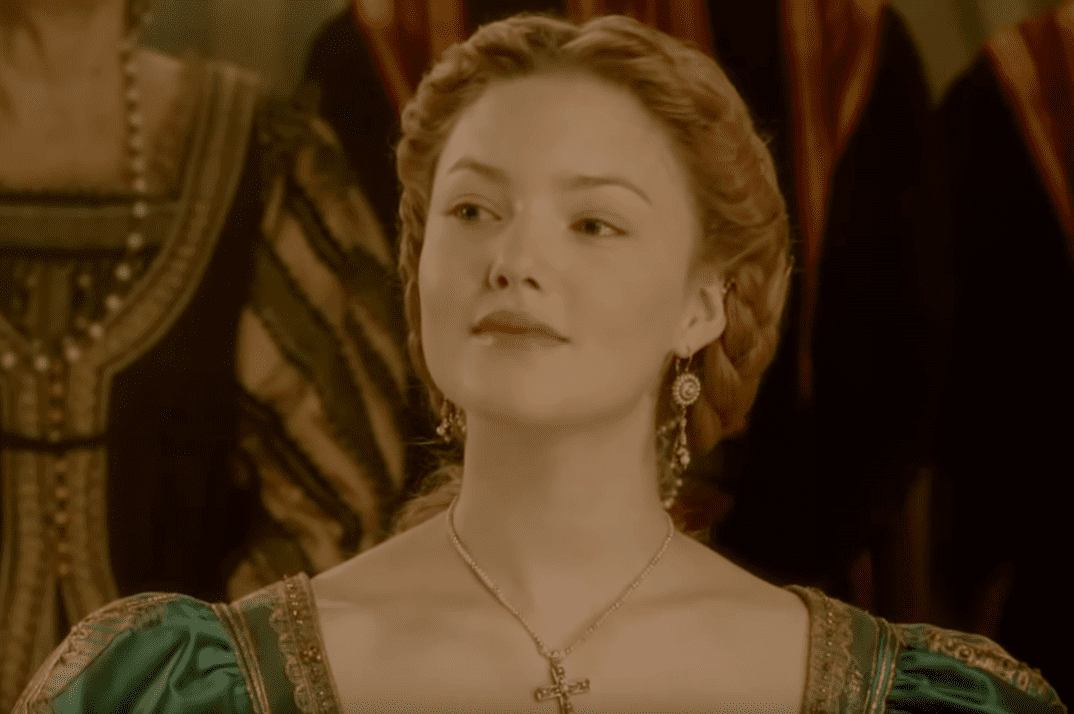 The Borgias (2011–2013), Showtime Networks
The Borgias (2011–2013), Showtime Networks
40. His Mistress Inspired a Religious Painting
The Renaissance artist Pinturicchio's painting of the Madonna came under scrutiny when critics accused him of using Pope Alexander VI’s mistress, Giulia Farnese, as a model for the Biblical Mary. That the pope's mistress might have stood in for the Virgin Mary herself was far too scandalous for even the most lecherous cardinal to handle.
41. History Has Not Been Kind to his Daughter
In later years, Lucrezia Borgia would take on the historical role of the villain. There were even rumors that she wore a ring with a secret compartment for arsenic to slip into drinks. However, it is more likely she was only a chess piece in Pope Alexander’s power games. Most of her villainization comes from her three marriages, all arranged and dissolved in a way that was advantageous to her father.
If anyone in the family was dispatching husbands and rivals, it was probably not Lucrezia. The rest of Pope Alexander’s family, however, is a different question entirely.
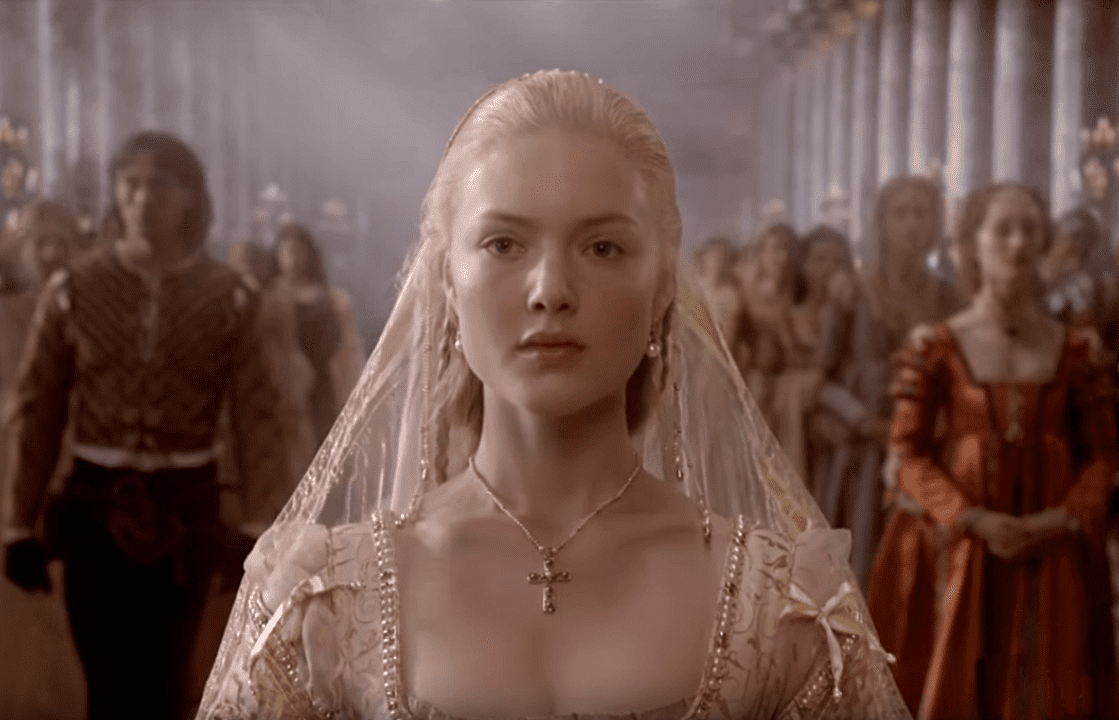 The Borgias (2011–2013), Showtime Networks
The Borgias (2011–2013), Showtime Networks
42. The City Rioted When He Passed
Following the passing of a pope or any high-ranking official, Romans followed the grand tradition of rioting and pillaging. Cesare was too ill to attend to family business when Alexander croaked, but he knew he had to do something. He sent a trusted associate to seize Alexander’s treasures before the public learned of his passing in order to keep them out of pillaging hands.
 The Borgias (2011–2013), Showtime Networks
The Borgias (2011–2013), Showtime Networks
43. The Next Pope Did Things Differently
When Giuliano della Rovere became Pope Julius II in 1503, he issued a decree that annulled any papal election bought by simony and excommunicated cardinals for selling their votes. It’s safe to say he was still bitter about Pope Alexander VI successfully buying his own election a decade prior.
44. Julius II Refused Pope Alexander’s Residence
After Alexander’s passing, the newly elected Julius II refused to take up residence in the same Vatican apartment as his predecessor. He abandoned the now-infamous Borgia Apartments for corresponding rooms on the next floor up. By all accounts, he hoped to escape the reminder of the pope he hated. The Borgia Apartments remained sealed until the 19th century, three centuries after Alexander VI's lifetime.
45. His Enemy Extracted Accusations Against Him
Despite the many swirling rumors about Pope Alexander VI’s sordid crimes, little solid evidence exists to condemn him. Around the time of his passing, the only accusations that he dosed rivals with Cantarella came from his own servants. The servants reportedly only made these accusations under duress and violence from Pope Julius II, hoping to further drag the reputation of his longtime enemy through the mud.
46. He Suffered From Anti-Spanish Propaganda
The Borgias were a Spanish family trying to play games of power throughout Italy, which may have been another downfall of their reputation. As Spaniards, they were subject to the influence of anti-Spanish propaganda following Spain’s involvement in the affairs of Northern Italy. During this volatile time, when Italian propaganda painted anything Spanish as brutal and cruel, Rodrigo Borgia tried to build wealth and power for his Spanish family. This wave of anti-Spanish sentiment could have helped wild rumors about the Borgias take hold.
47. His Successor May Have Created His Rep
Some modern historians believe Alexander VI has been unfairly besmirched in the historical record, claiming that he was the victim of a smear campaign by Pope Julius II. In 1999, the Vatican opened their archives to scholars seeking new information that may show the Borgia Pope in a more favorable light.
48. He Was the Last Spanish Pope
After Alexander VI, there was no other non-Italian pope for 500 years. The next pope from outside of Italy was the Polish John Paul II, elected in 1978.
49. He Lost a Son Under Mysterious Circumstances
Pope Alexander favored his son Juan, his eldest child by Vannozza dei Cattanei, until tragedy struck. Following the French invasion, Alexander turned on the powerful France-aligned Orsini family, seizing their land and intending to give those lands to Juan. Before he could maneuver his son into this seat of power, Juan's corpse was found washed up in the Tiber River, the victim of foul play.
The culprit is still a mystery, though a jealous lover, Cardinal Ascanio Sforza, and Juan's brother Cesare Borgia were all suspected.
50. His Reign May Have Ended in Foul Play
When Pope Alexander VI finally passed on, it was in a manner befitting his legacy—under mysterious circumstances. He fell suddenly ill with a mysterious malady and it ravaged his body, claiming his life in August 1503. The effects on his body were so gruesome that his attendants deemed the remains unfit to display publicly. This stirred up rumors that it was not a natural illness.
One rumor stated Cesare had accidentally dosed his father with a fatal concoction while aiming for a rival. However, some historians suspect it was more likely malaria that brought down the Borgia Pope.
Sources: 1, 2, 3, 4, 5, 6, 7, 8, 9, 10, 11, 12, 13, 14, 15, 16, 17, 18, 19, 20, 21, 22, 23

